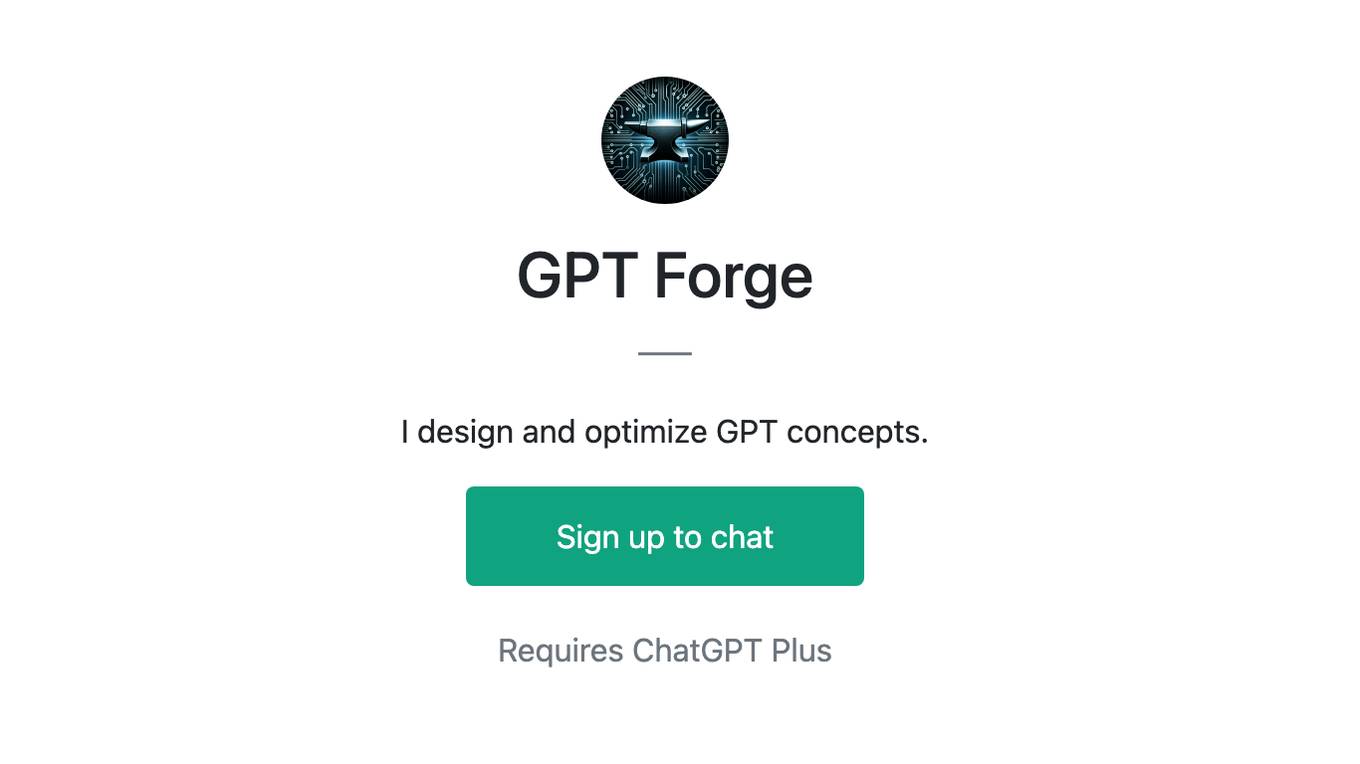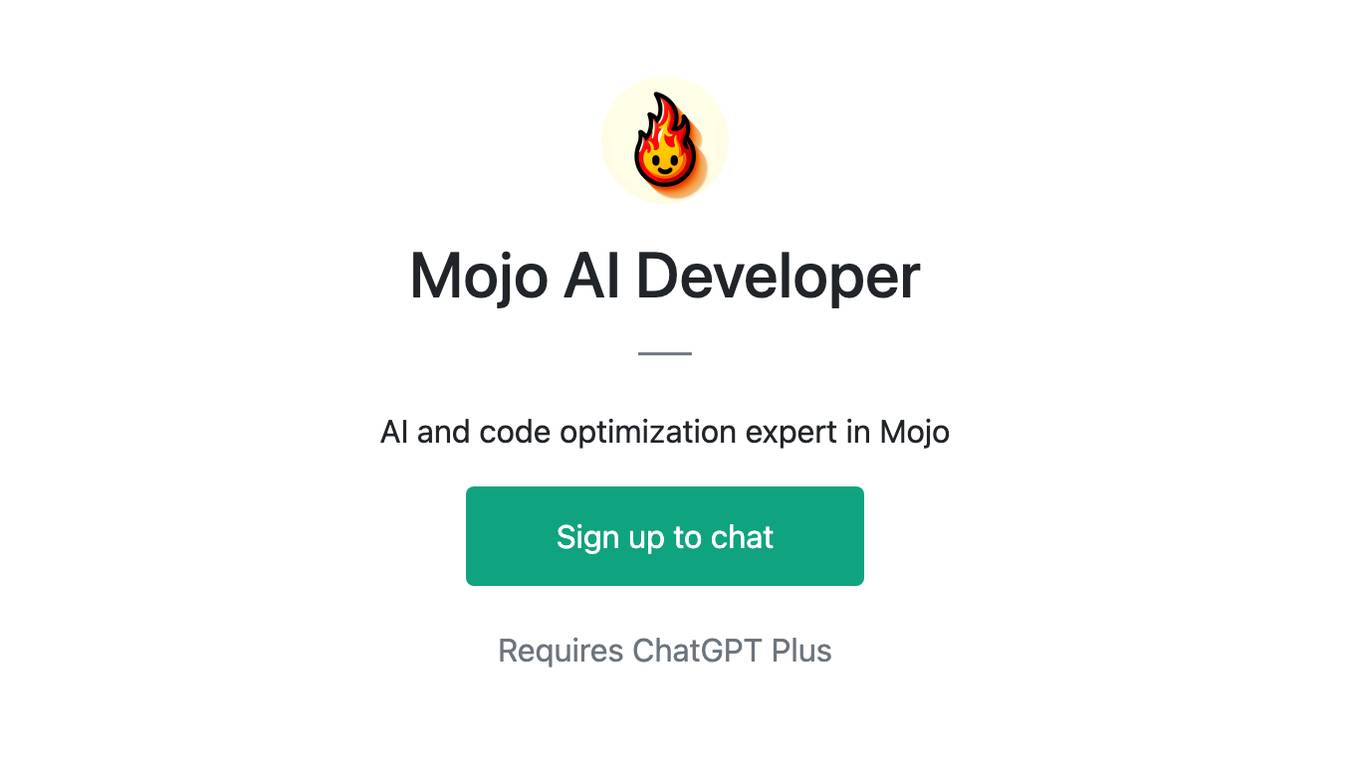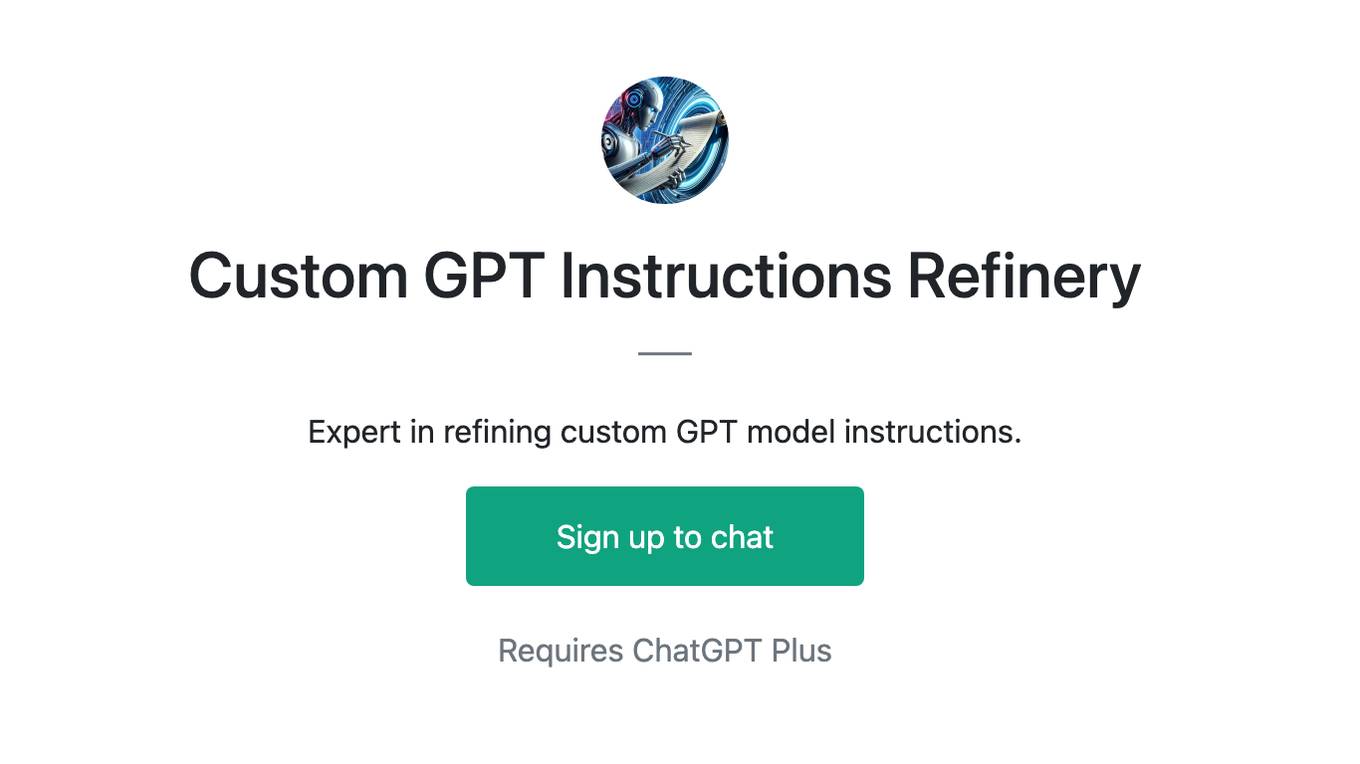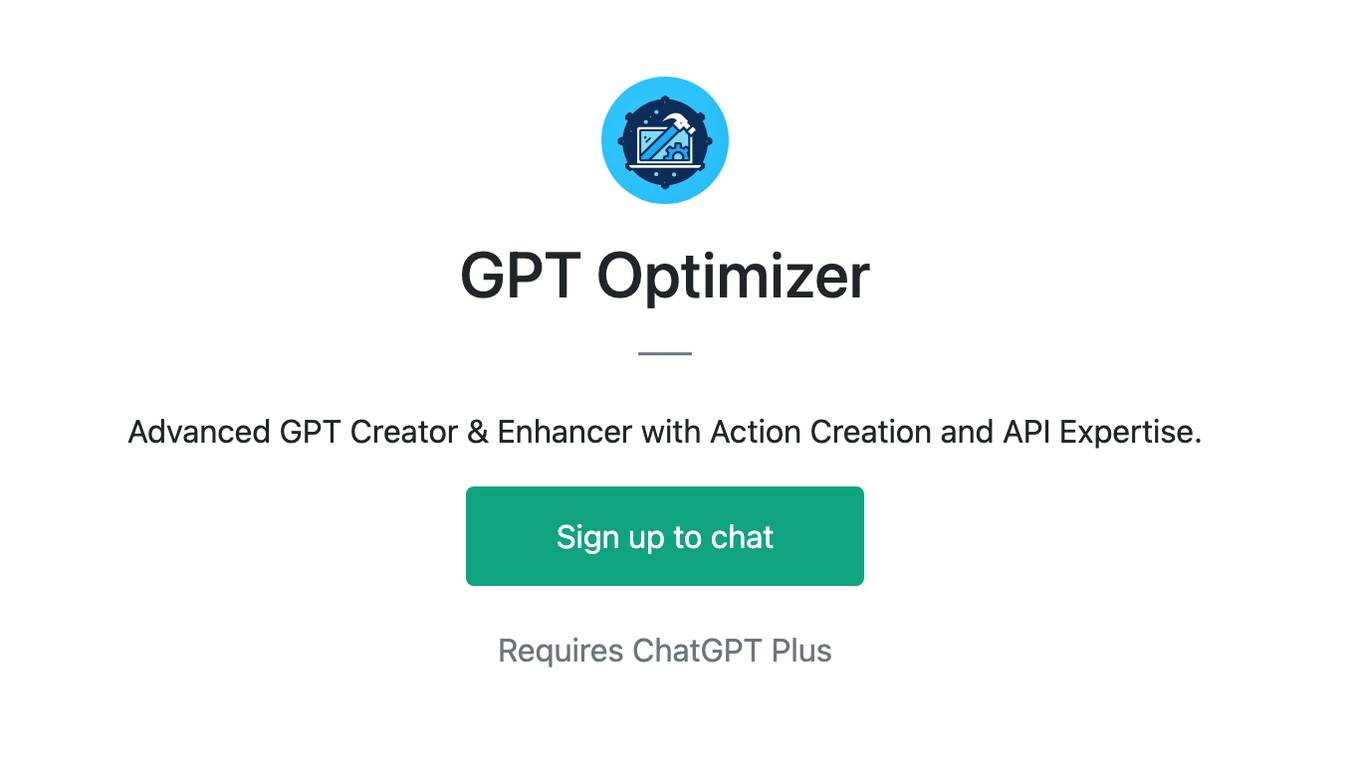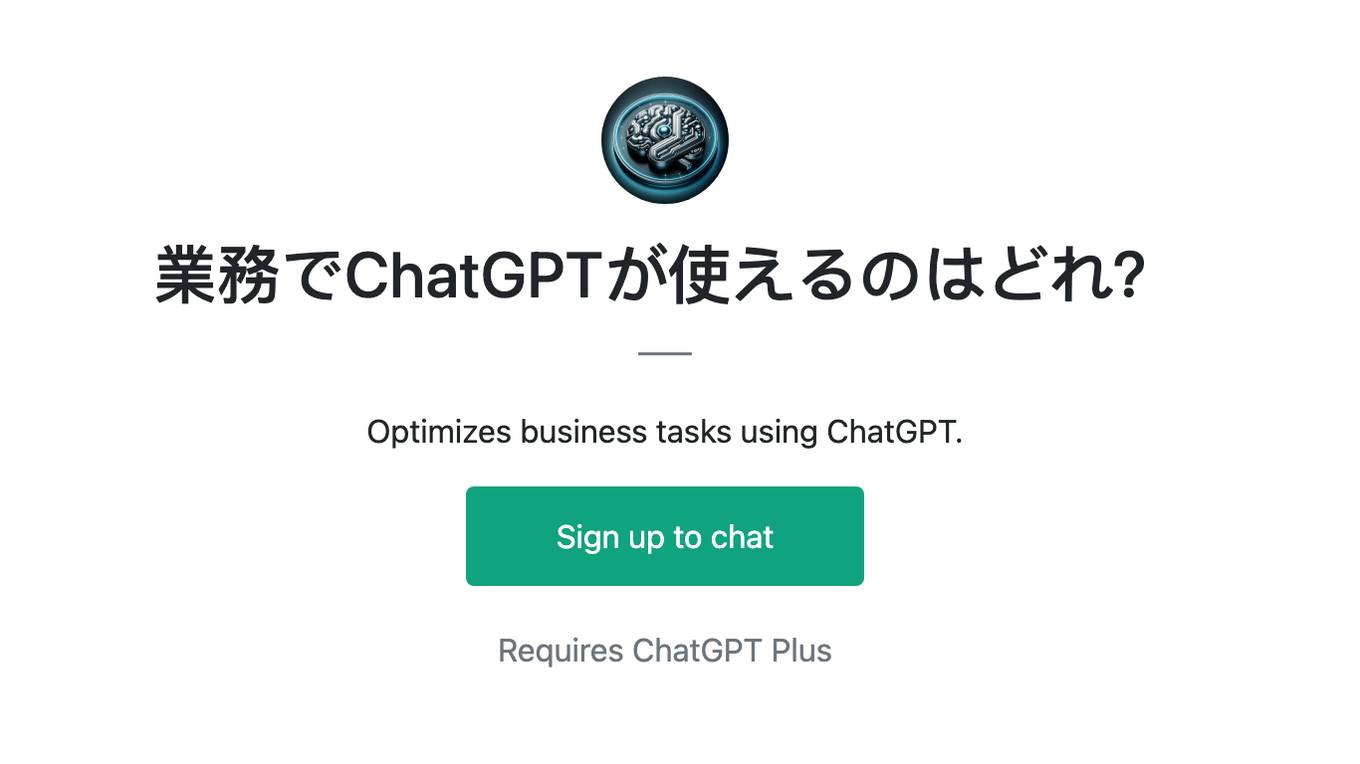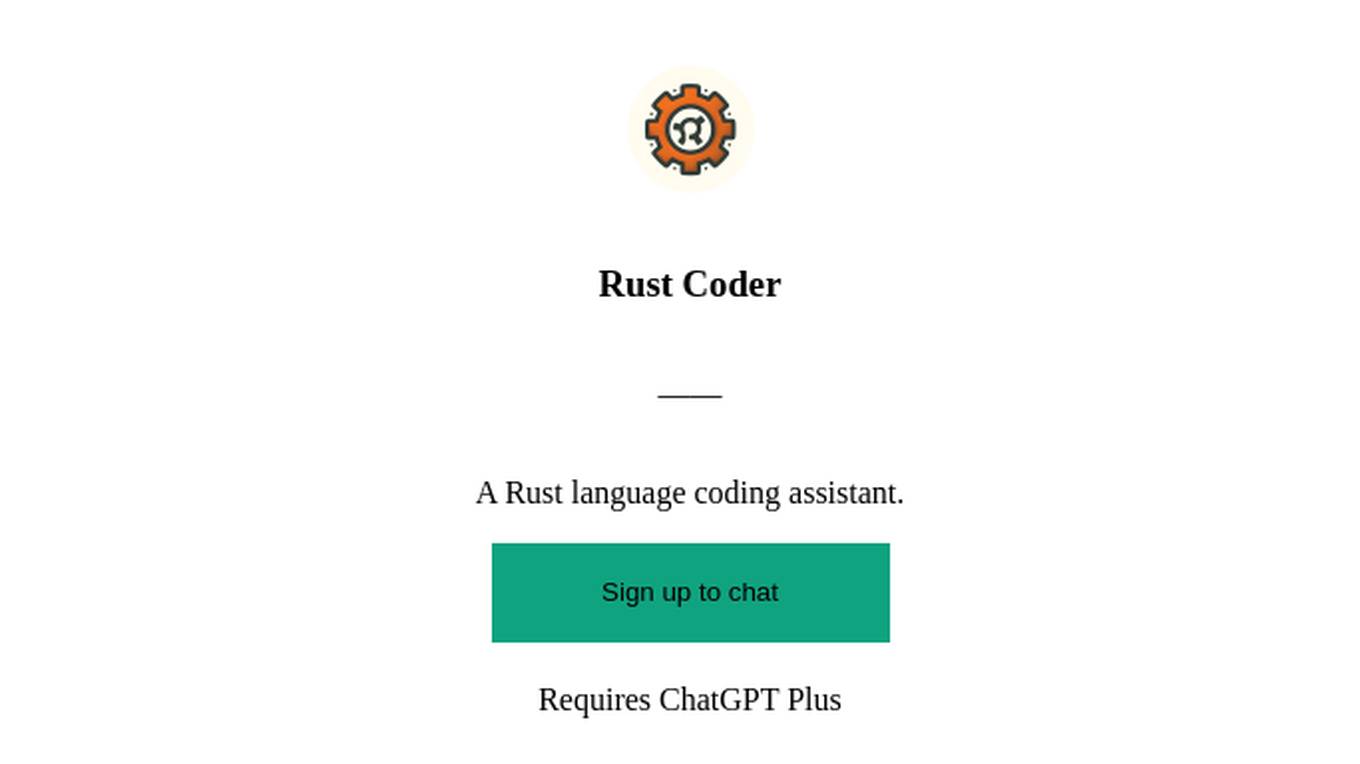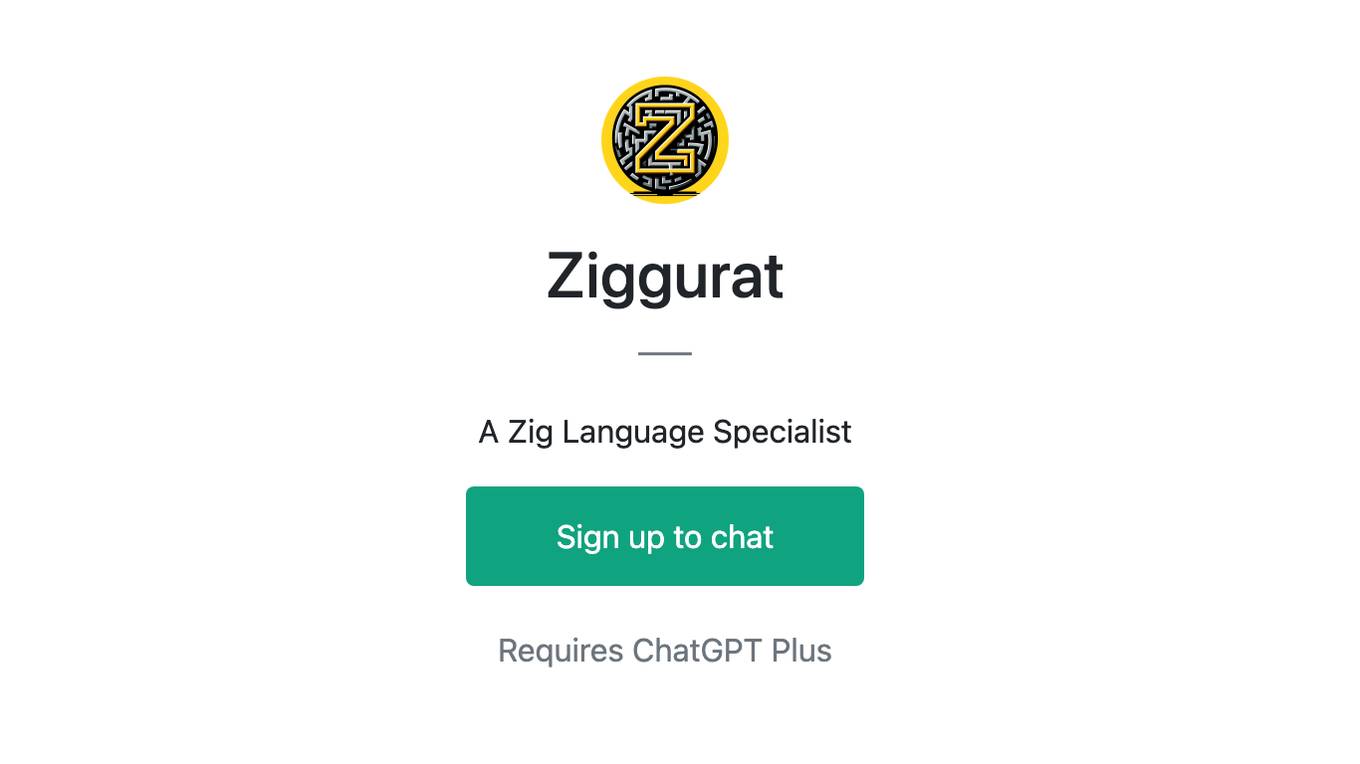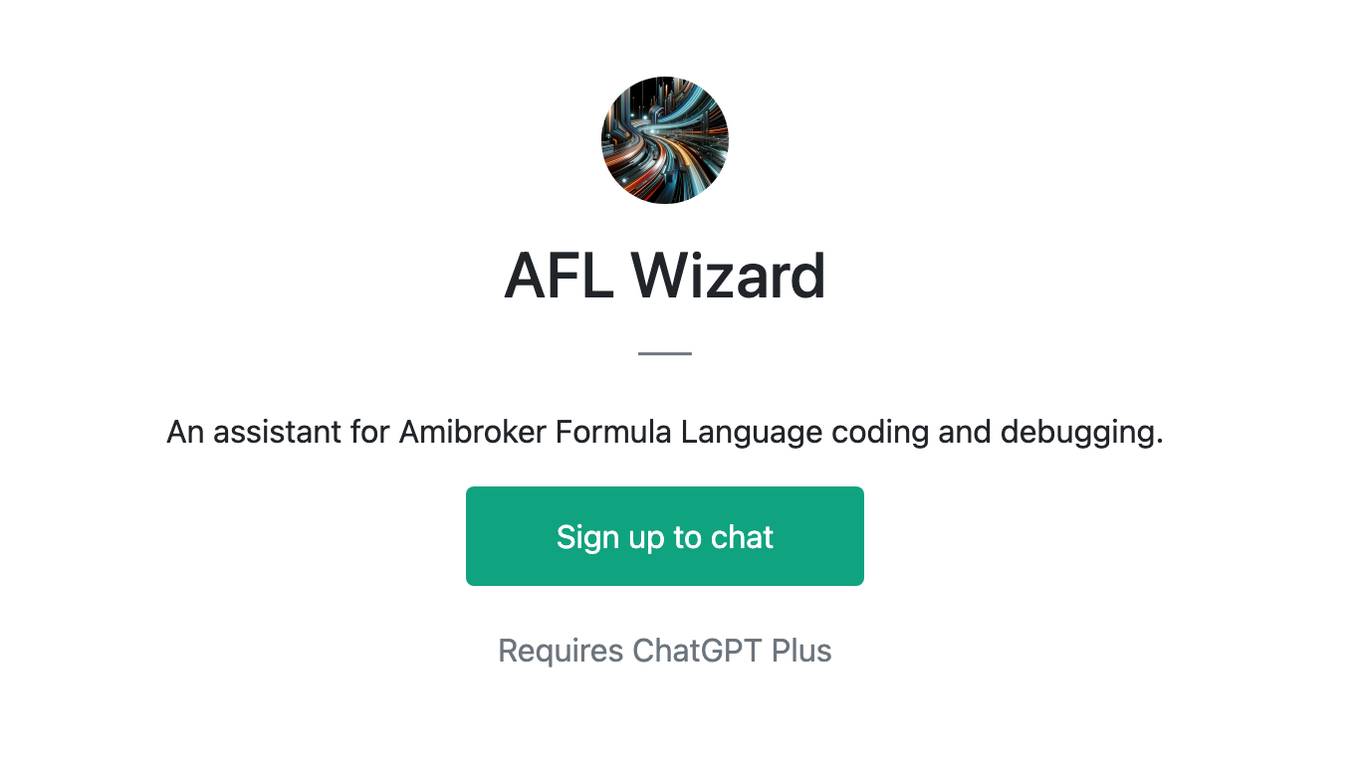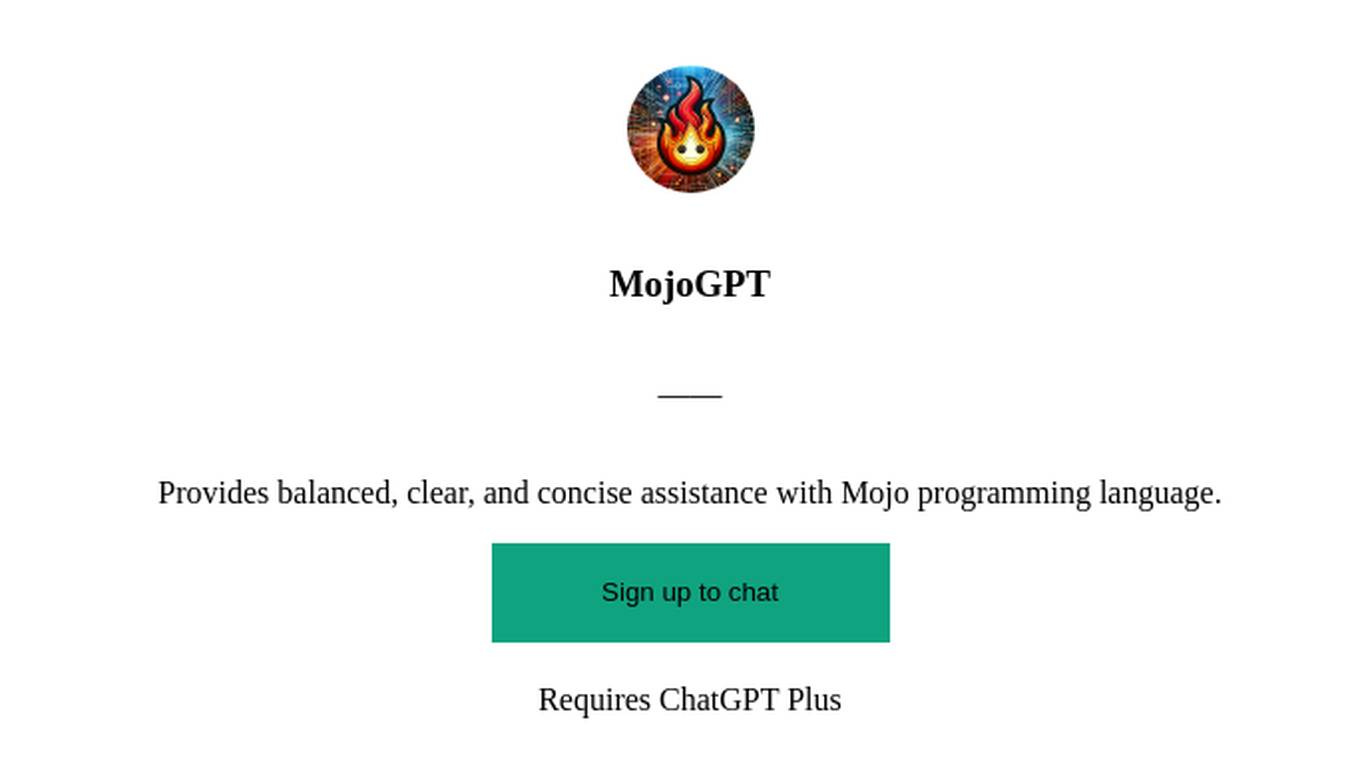Best AI tools for< Optimize Language Models >
20 - AI tool Sites
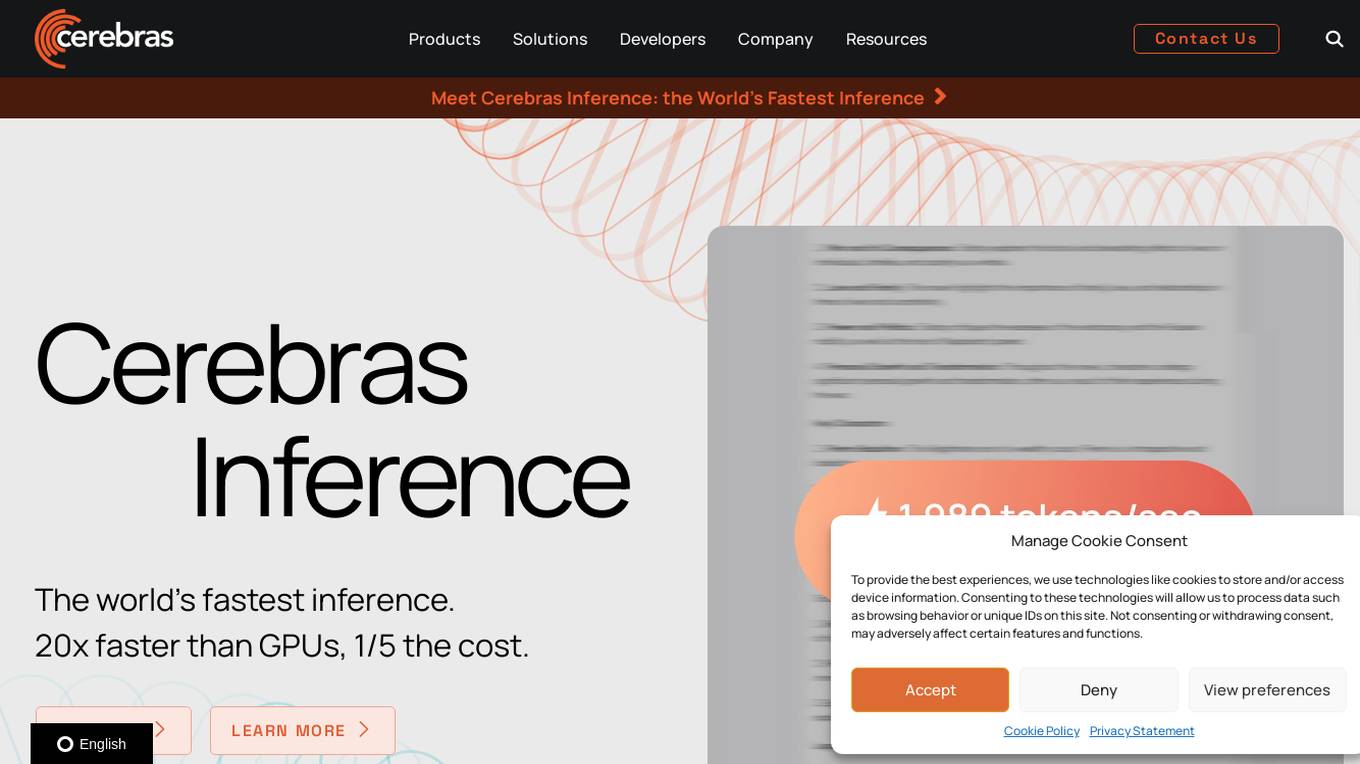
Cerebras
Cerebras is an AI tool that offers products and services related to AI supercomputers, cloud system processors, and applications for various industries. It provides high-performance computing solutions, including large language models, and caters to sectors such as health, energy, government, scientific computing, and financial services. Cerebras specializes in AI model services, offering state-of-the-art models and training services for tasks like multi-lingual chatbots and DNA sequence prediction. The platform also features the Cerebras Model Zoo, an open-source repository of AI models for developers and researchers.
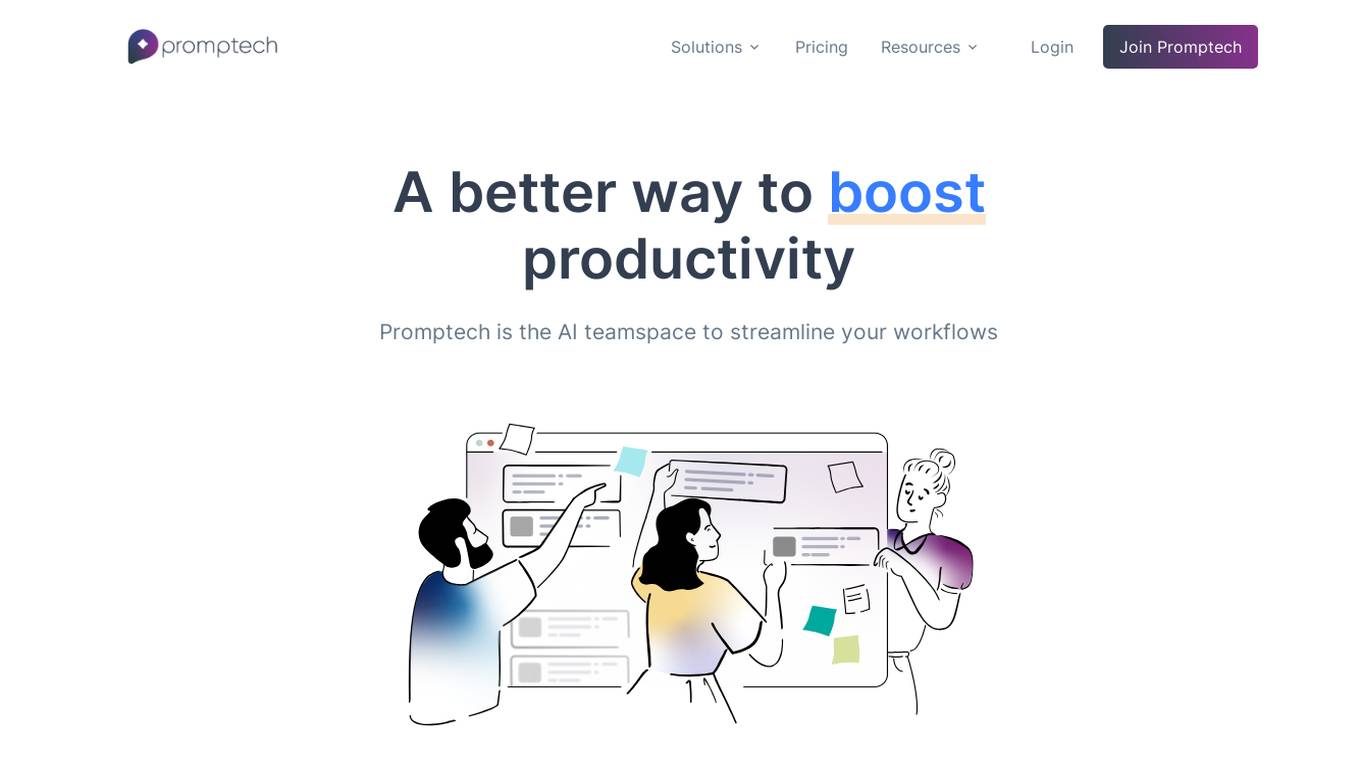
Promptech
Promptech is an AI teamspace designed to streamline workflows and enhance productivity. It offers a range of features including AI assistants, a collaborative teamspace, and access to large language models (LLMs). Promptech is suitable for businesses of all sizes and can be used for a variety of tasks such as streamlining tasks, enhancing collaboration, and safeguarding IP. It is a valuable resource for technology leaders and provides a cost-effective AI solution for smaller teams and startups.
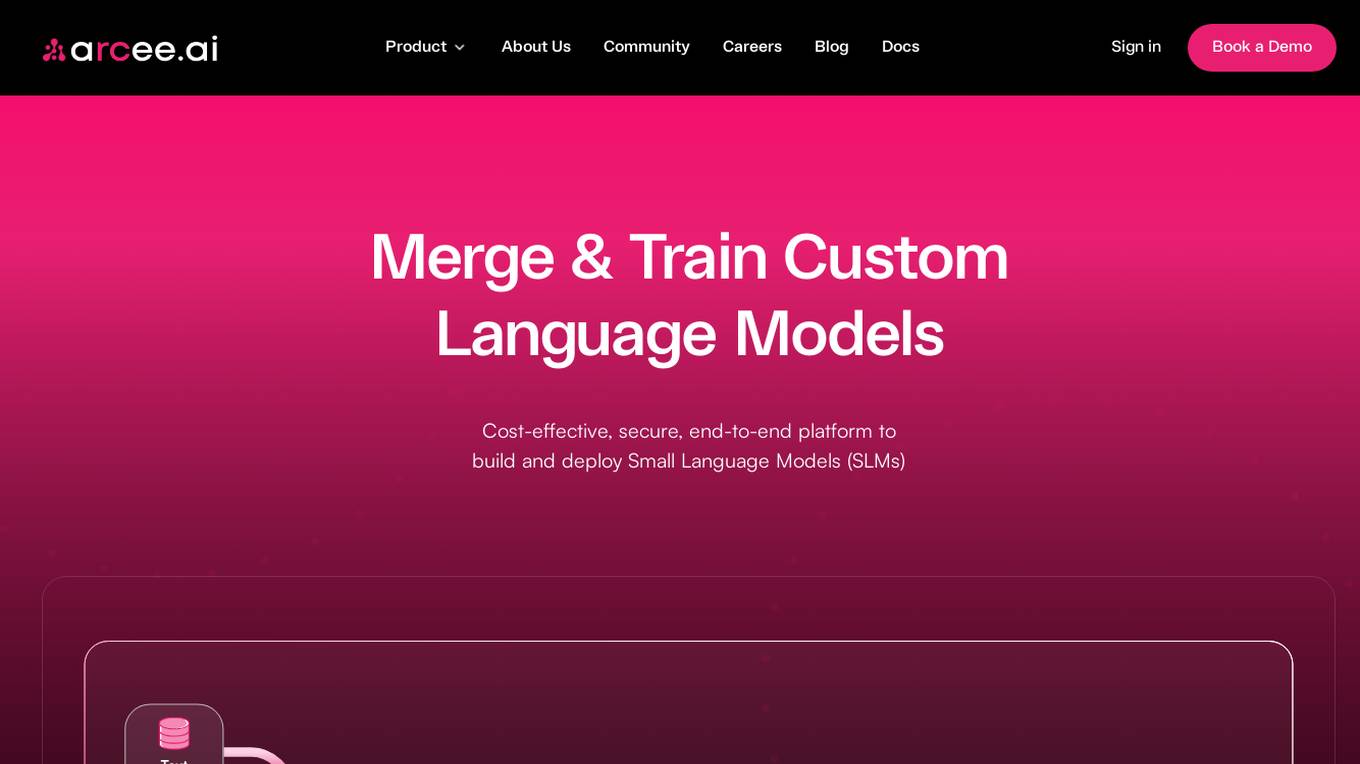
Arcee AI
Arcee AI is a platform that offers a cost-effective, secure, end-to-end solution for building and deploying Small Language Models (SLMs). It allows users to merge and train custom language models by leveraging open source models and their own data. The platform is known for its Model Merging technique, which combines the power of pre-trained Large Language Models (LLMs) with user-specific data to create high-performing models across various industries.

LM-Kit.NET
LM-Kit.NET is a comprehensive AI toolkit for .NET developers, offering a wide range of features such as AI agent integration, data processing, text analysis, translation, text generation, and model optimization. The toolkit enables developers to create intelligent and adaptable AI applications by providing tools for language models, sentiment analysis, emotion detection, and more. With a focus on performance optimization and security, LM-Kit.NET empowers developers to build cutting-edge AI solutions seamlessly into their C# and VB.NET applications.
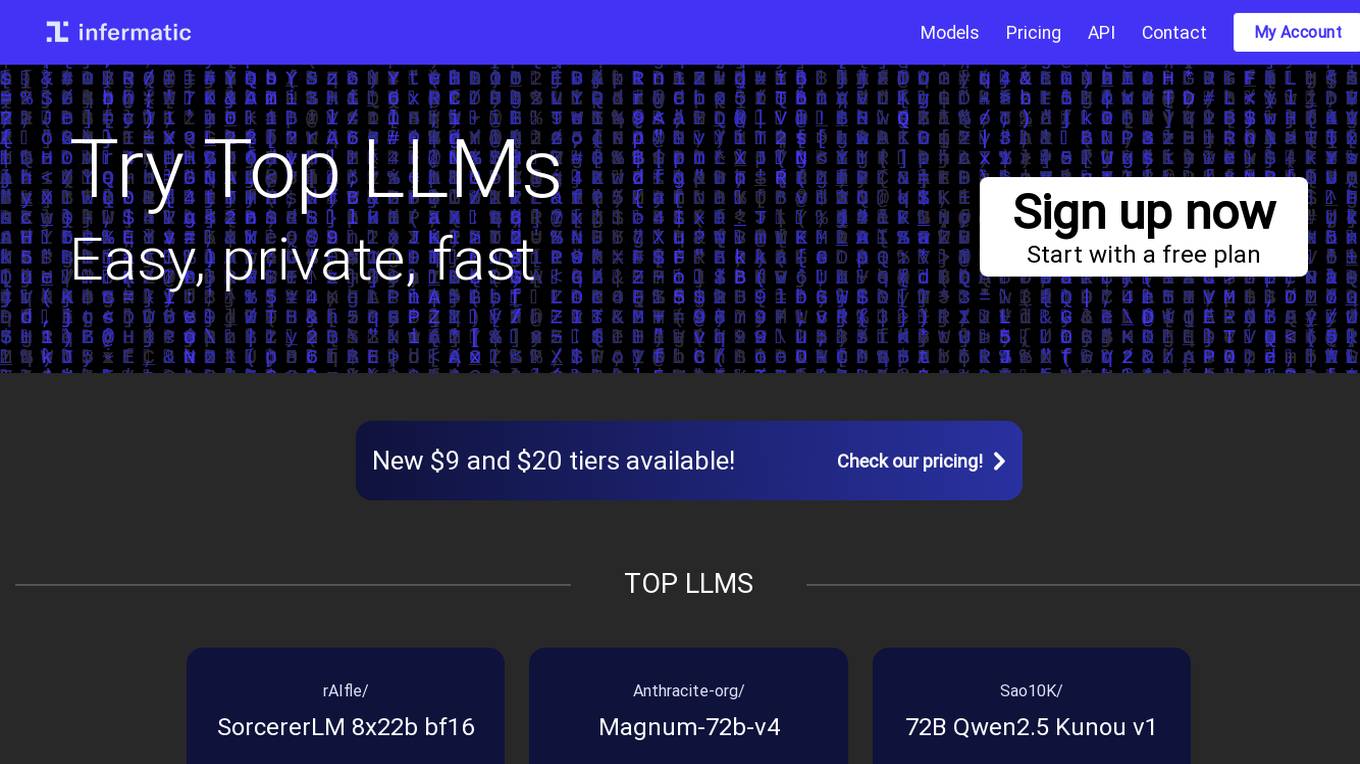
Infermatic.ai
Infermatic.ai is a platform that provides access to top Large Language Models (LLMs) with a user-friendly interface. It offers complete privacy, robust security, and scalability for projects, research, and integrations. Users can test, choose, and scale LLMs according to their content needs or business strategies. The platform eliminates the complexities of infrastructure management, latency issues, version control problems, integration complexities, scalability concerns, and cost management issues. Infermatic.ai is designed to be secure, intuitive, and efficient for users who want to leverage LLMs for various tasks.
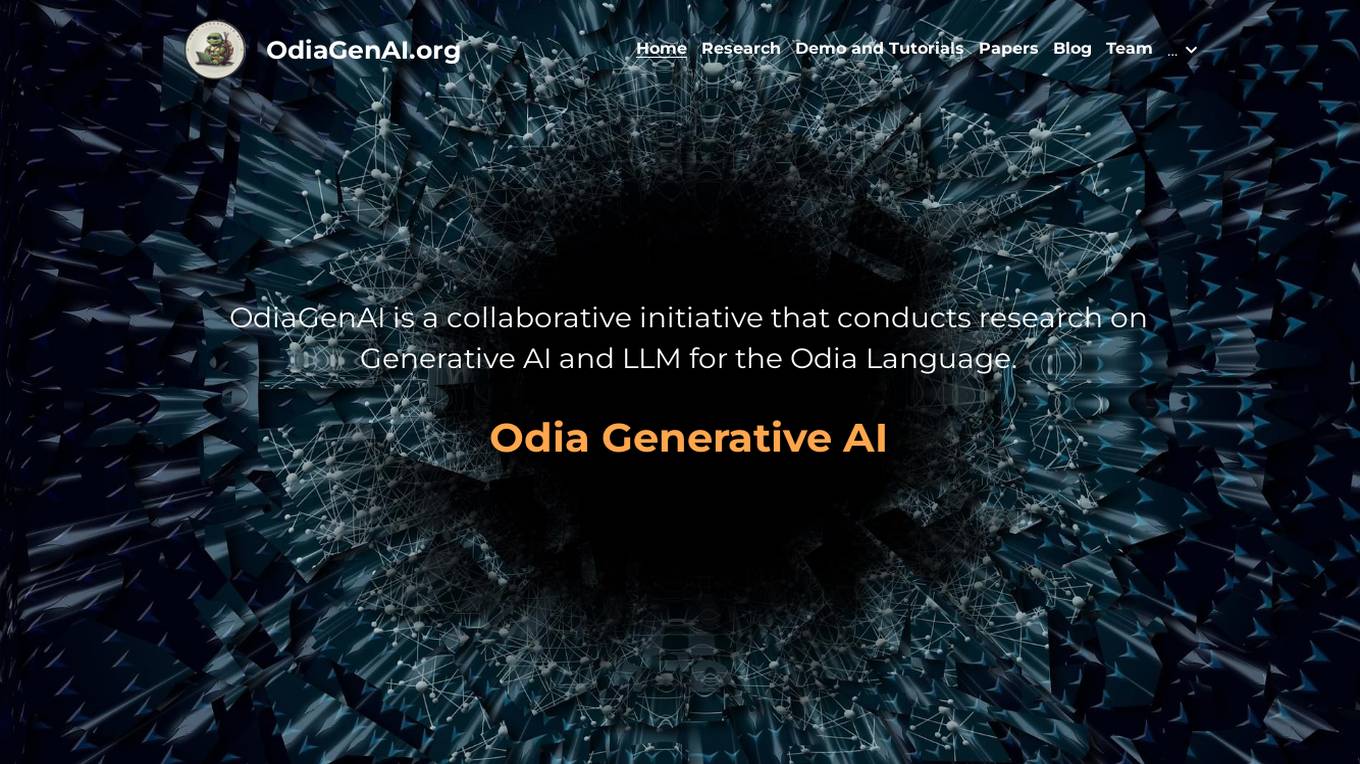
OdiaGenAI
OdiaGenAI is a collaborative initiative focused on conducting research on Generative AI and Large Language Models (LLM) for the Odia Language. The project aims to leverage AI technology to develop Generative AI and LLM-based solutions for the overall development of Odisha and the Odia language through collaboration among Odia technologists. The initiative offers pre-trained models, codes, and datasets for non-commercial and research purposes, with a focus on building language models for Indic languages like Odia and Bengali.
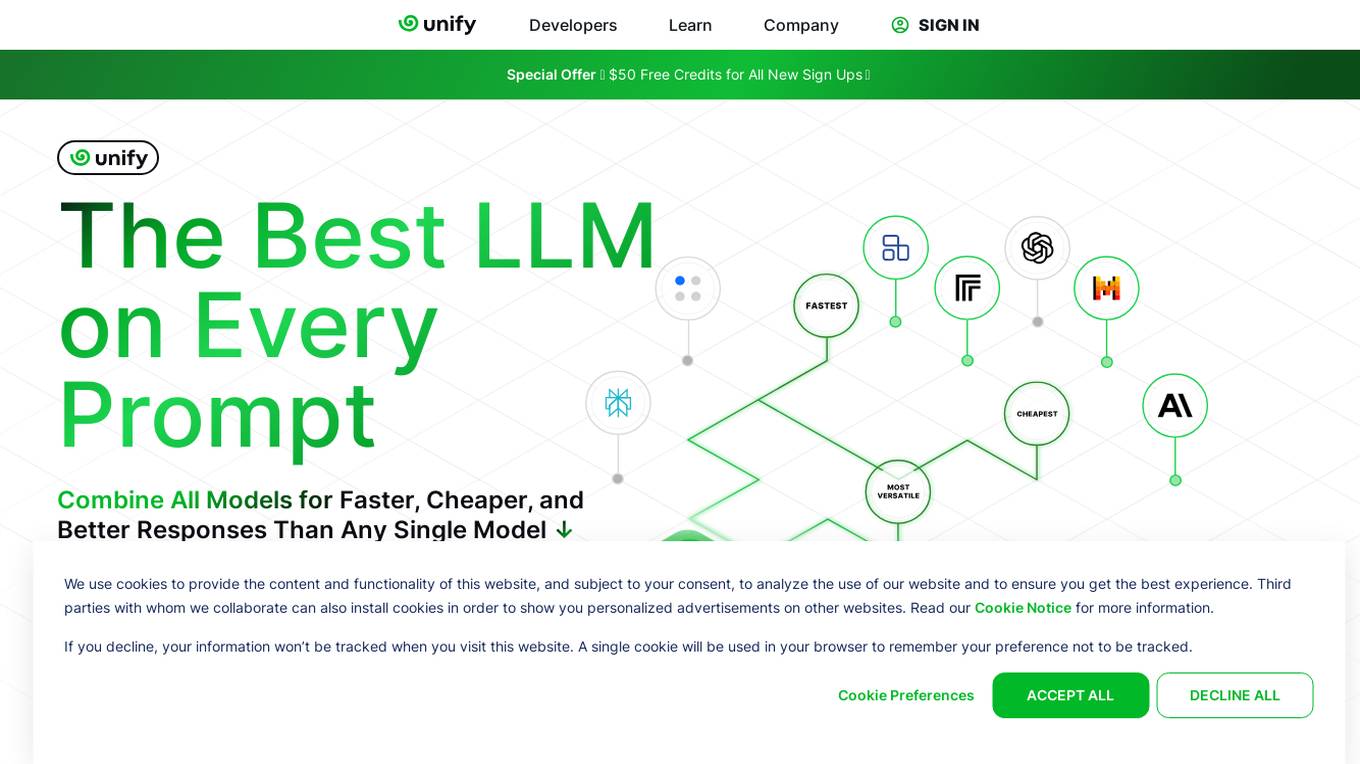
Unify
Unify is an AI tool that offers a unified platform for accessing and comparing various Language Models (LLMs) from different providers. It allows users to combine models for faster, cheaper, and better responses, optimizing for quality, speed, and cost-efficiency. Unify simplifies the complex task of selecting the best LLM by providing transparent benchmarks, personalized routing, and performance optimization tools.
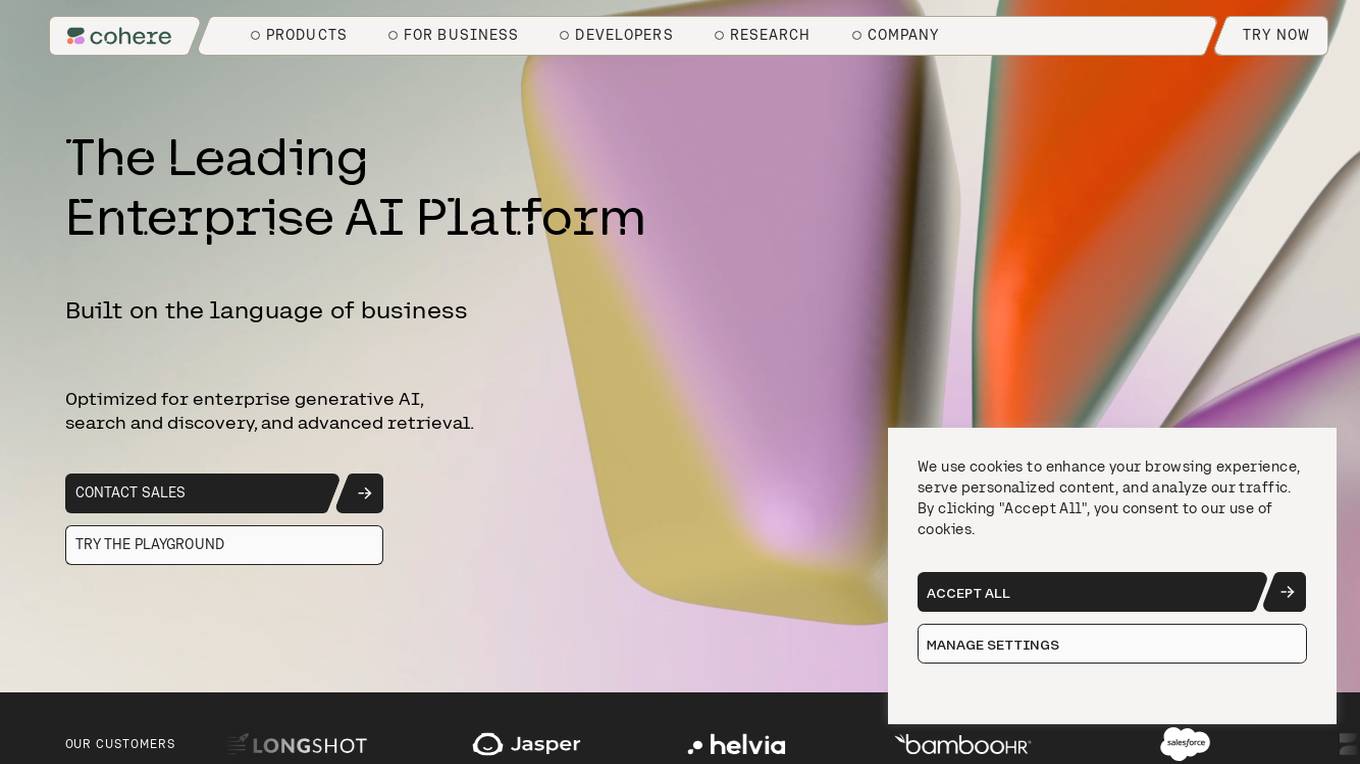
Cohere
Cohere is the leading AI platform for enterprise, offering generative AI, search and discovery, and advanced retrieval solutions. Their models are designed to enhance the global workforce, empowering businesses to thrive in the AI era. With features like Cohere Command, Cohere Embed, and Cohere Rerank, the platform enables the development of scalable and efficient AI-powered applications. Cohere focuses on optimizing enterprise data through language-based models, supporting over 100 languages for enhanced accuracy and efficiency.
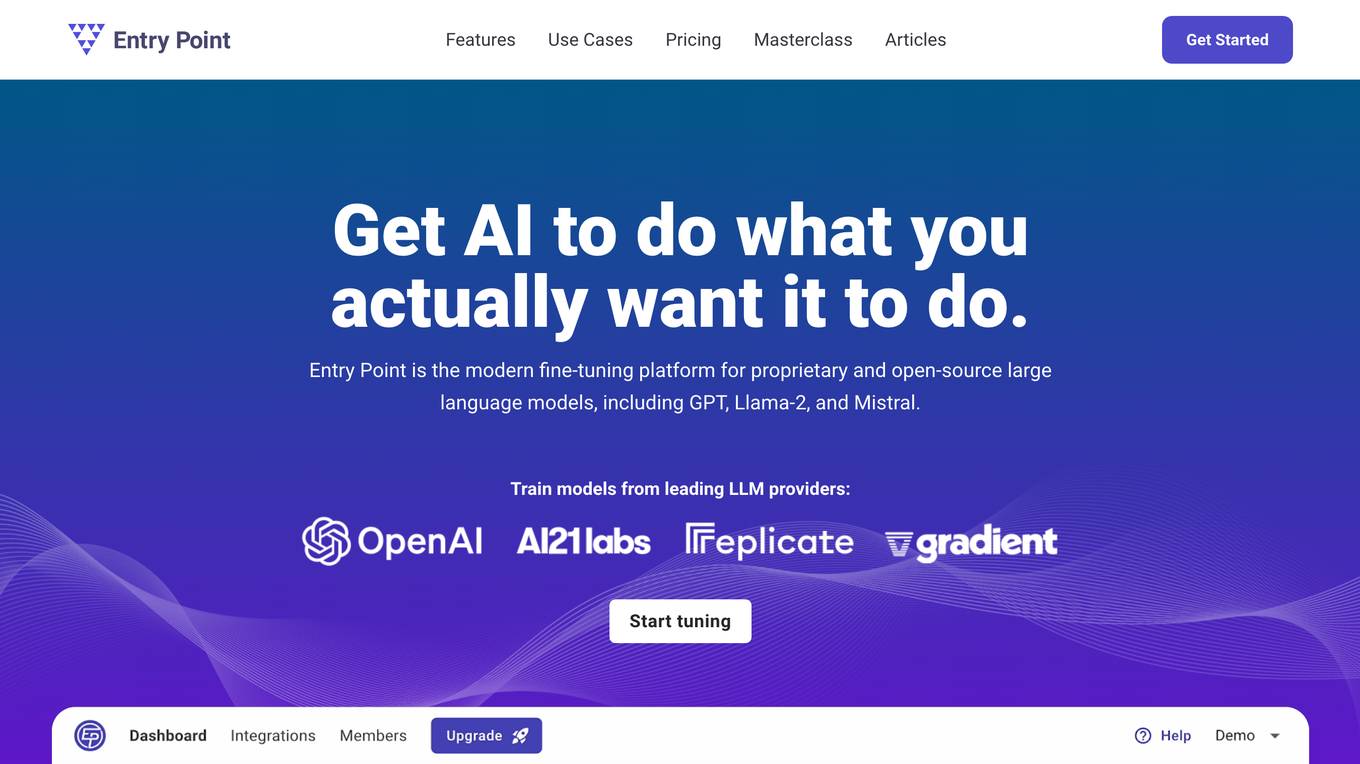
Entry Point AI
Entry Point AI is a modern AI optimization platform for fine-tuning proprietary and open-source language models. It provides a user-friendly interface to manage prompts, fine-tunes, and evaluations in one place. The platform enables users to optimize models from leading providers, train across providers, work collaboratively, write templates, import/export data, share models, and avoid common pitfalls associated with fine-tuning. Entry Point AI simplifies the fine-tuning process, making it accessible to users without the need for extensive data, infrastructure, or insider knowledge.
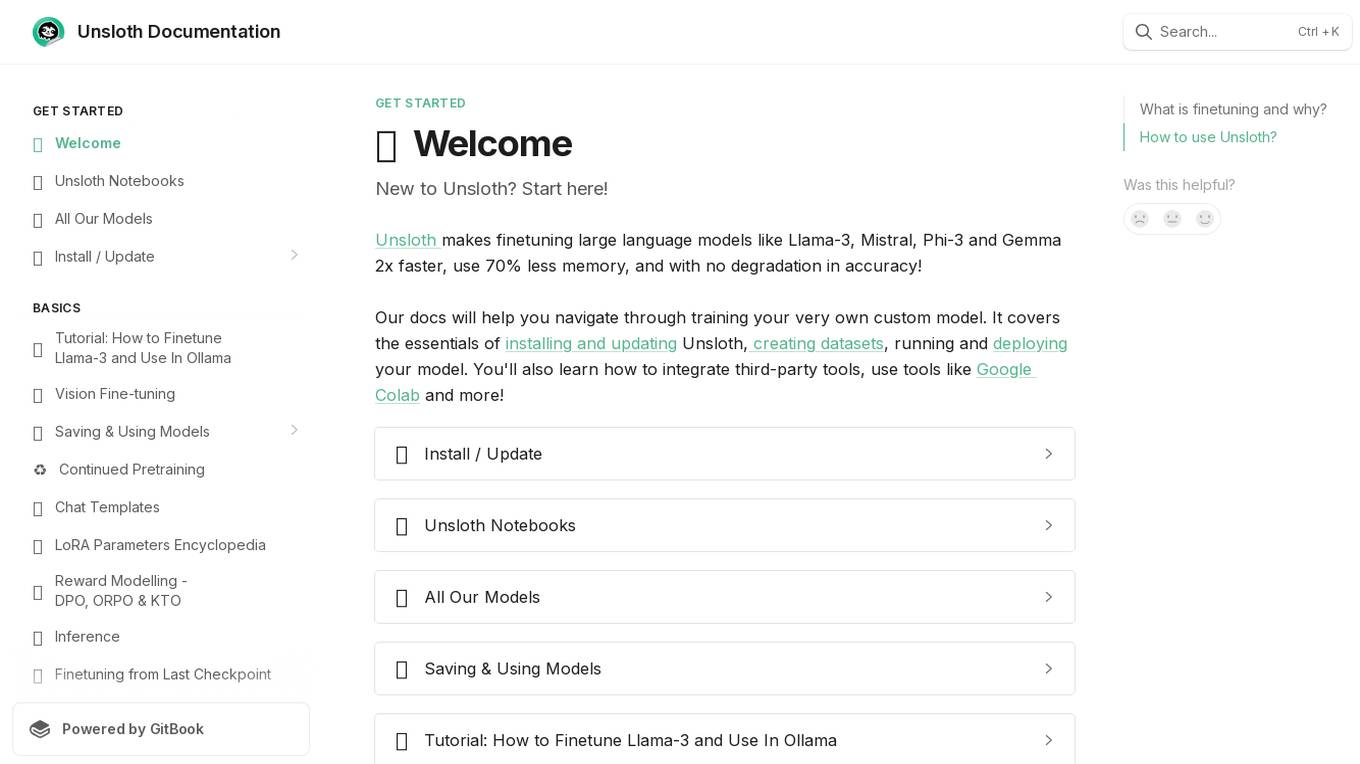
Unsloth
Unsloth is an AI tool designed to make finetuning large language models like Llama-3, Mistral, Phi-3, and Gemma 2x faster, use 70% less memory, and with no degradation in accuracy. The tool provides documentation to help users navigate through training their custom models, covering essentials such as installing and updating Unsloth, creating datasets, running, and deploying models. Users can also integrate third-party tools and utilize platforms like Google Colab.
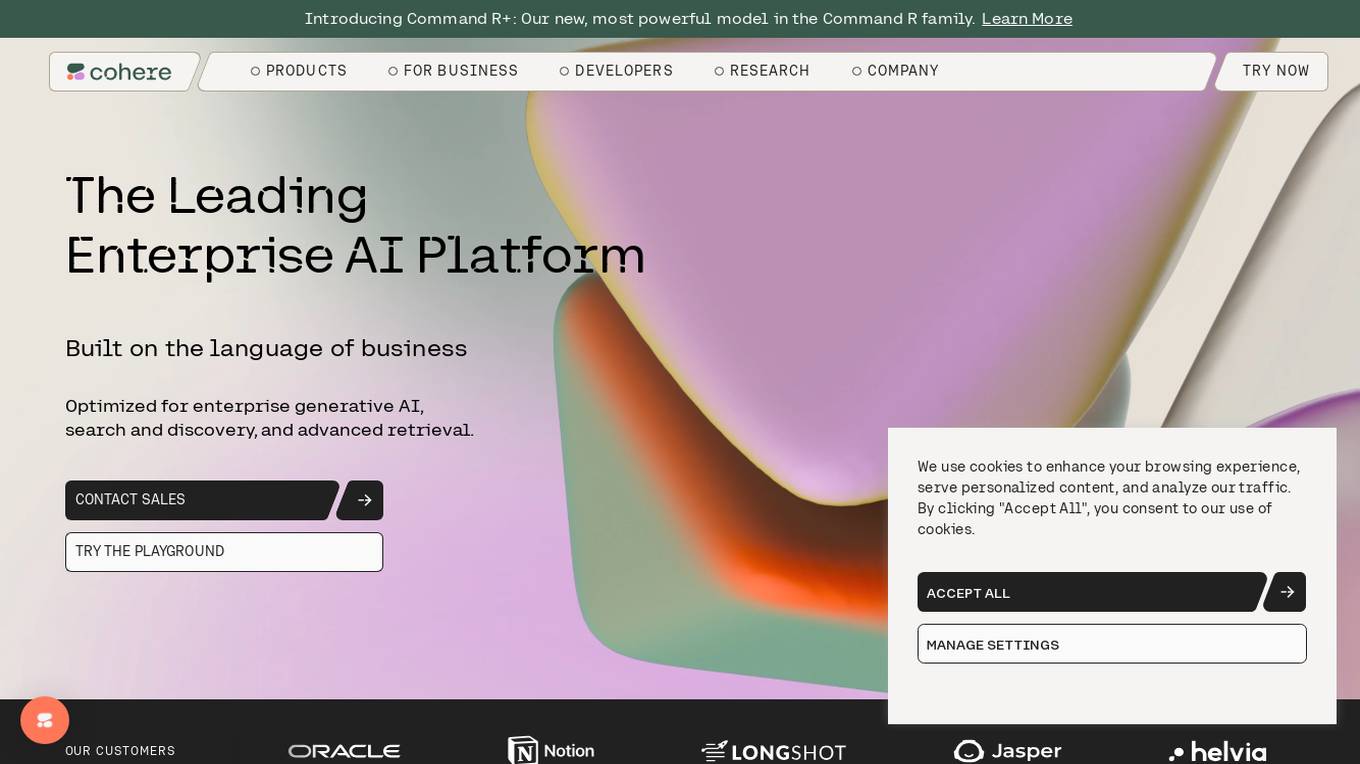
Cohere
Cohere is the leading AI platform for enterprise, offering products optimized for generative AI, search and discovery, and advanced retrieval. Their models are designed to enhance the global workforce, enabling businesses to thrive in the AI era. Cohere provides Command R+, Cohere Command, Cohere Embed, and Cohere Rerank for building efficient AI-powered applications. The platform also offers deployment options for enterprise-grade AI on any cloud or on-premises, along with developer resources like Playground, LLM University, and Developer Docs.

Thales Labs AI
Thales Labs is a premier AI research lab and incubator empowering entrepreneurs and domain experts to revolutionize industries with large language models and web3. They focus on fostering innovation in sectors like Insurance, Finance, Healthcare, Pharma, Law, and Journalism. The user-friendly app allows experts to build AI applications using their natural language skills, with support from skilled engineers for complex challenges. Join Thales Labs to transform industries, unlock new opportunities, and create value with AI-driven innovation.
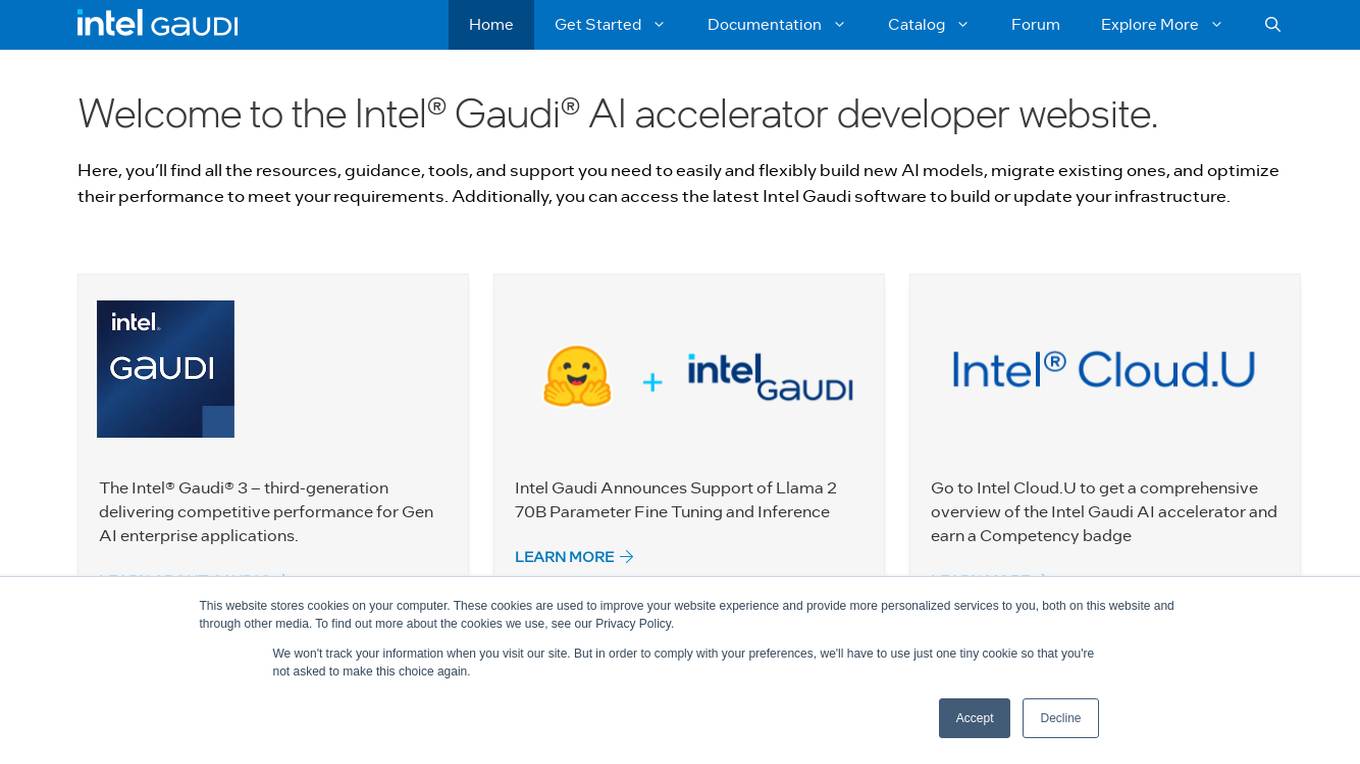
Intel Gaudi AI Accelerator Developer
The Intel Gaudi AI accelerator developer website provides resources, guidance, tools, and support for building, migrating, and optimizing AI models. It offers software, model references, libraries, containers, and tools for training and deploying Generative AI and Large Language Models. The site focuses on the Intel Gaudi accelerators, including tutorials, documentation, and support for developers to enhance AI model performance.
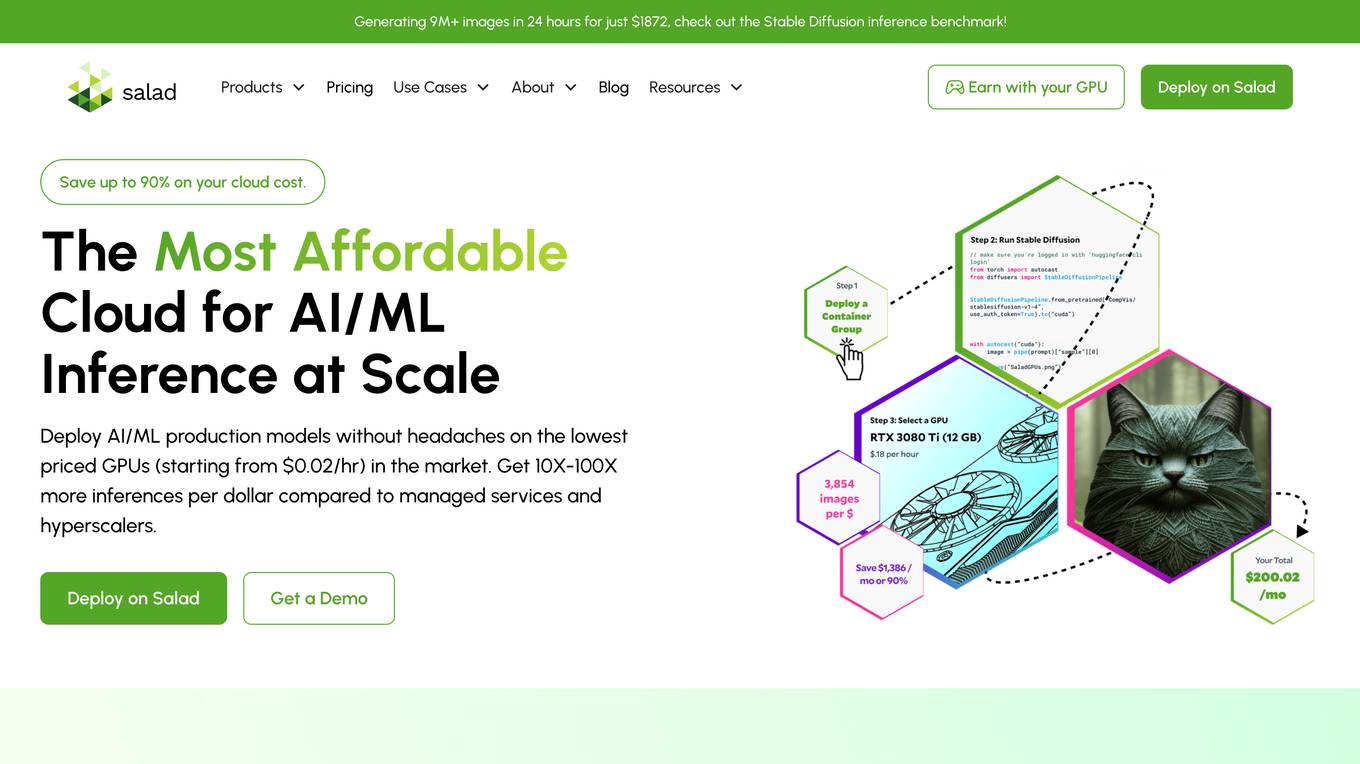
Salad
Salad is a distributed GPU cloud platform that offers fully managed and massively scalable services for AI applications. It provides the lowest priced AI transcription in the market, with features like image generation, voice AI, computer vision, data collection, and batch processing. Salad democratizes cloud computing by leveraging consumer GPUs to deliver cost-effective AI/ML inference at scale. The platform is trusted by hundreds of machine learning and data science teams for its affordability, scalability, and ease of deployment.
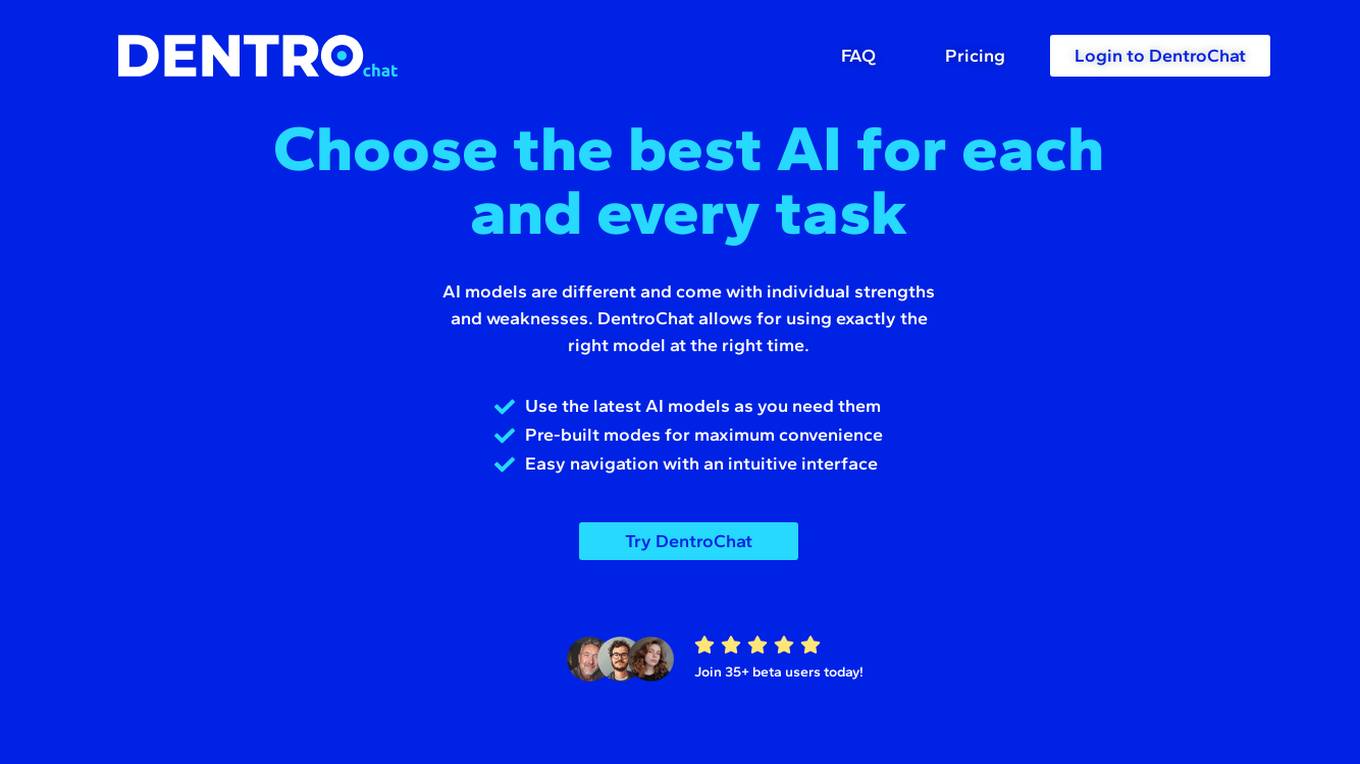
DentroChat
DentroChat is an AI chat application that reimagines the way users interact with AI models. It allows users to select from various large language models (LLMs) in different modes, enabling them to choose the best AI for their specific tasks. With seamless mode switching and optimized performance, DentroChat offers flexibility and precision in AI interactions.
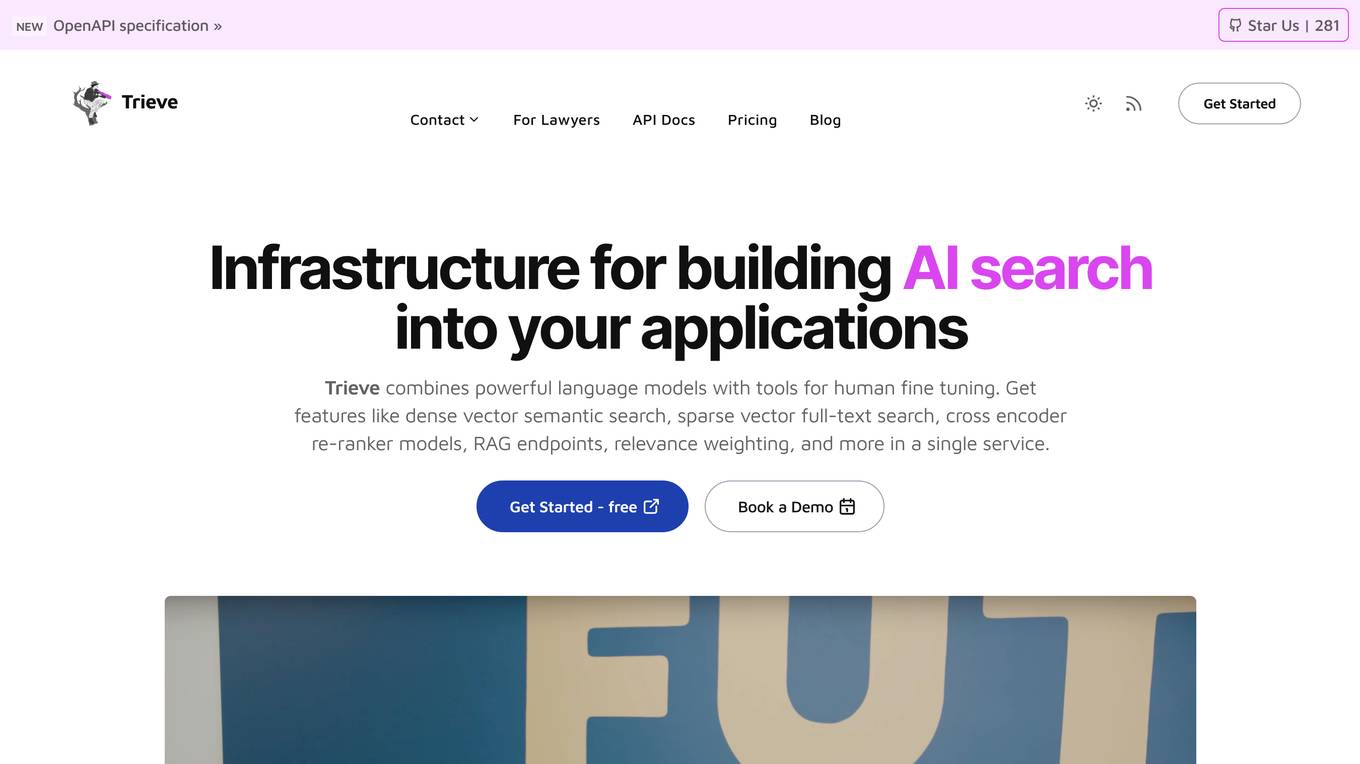
Trieve
Trieve is an AI-first infrastructure API that offers search, recommendations, and RAG capabilities by combining language models with tools for fine-tuning ranking and relevance. It helps companies build unfair competitive advantages through their discovery experiences, powering over 30,000 discovery experiences across various categories. Trieve supports semantic vector search, BM25 & SPLADE full-text search, hybrid search, merchandising & relevance tuning, and sub-sentence highlighting. The platform is built on open-source models, ensuring data privacy, and offers self-hostable options for sensitive data and maximum performance.
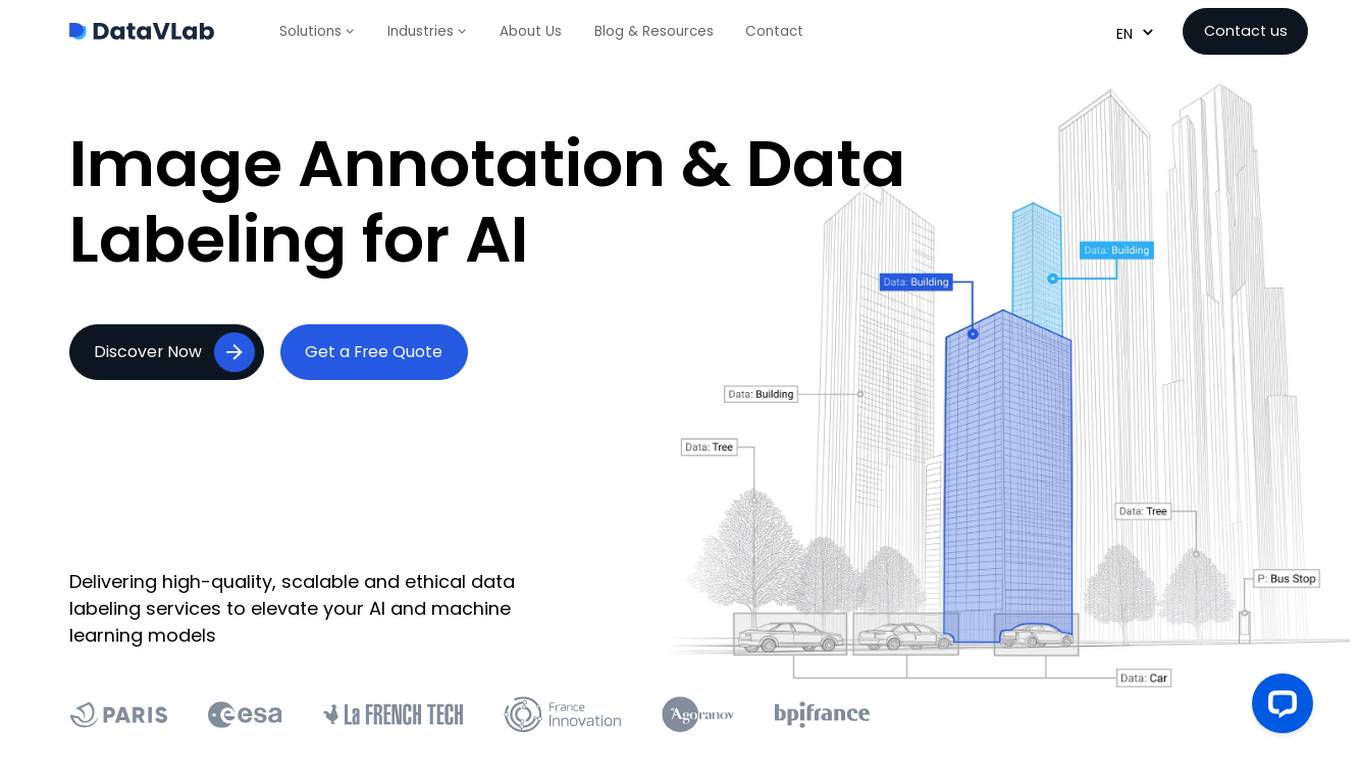
DataVLab Solutions
DataVLab Solutions is an AI-powered platform offering comprehensive image annotation and data labeling services for AI applications. They provide high-quality, scalable, and ethical data labeling solutions to enhance AI and machine learning models. With expertise in image, video, 3D annotation, custom AI projects, NLP, and text annotation, DataVLab Solutions caters to various industries such as energy infrastructure, autonomous vehicles, agriculture, medical, e-commerce, and insurance. Their advanced annotation process accelerates data labeling, ensuring precision and efficiency. Leveraging AI-driven tools, they offer tailor-made annotation workflows for unique AI challenges, delivering high-quality annotations for computer vision models, dynamic data, and spatial AI. The platform also provides training data and fine-tuning support for Large Language Models and generative AI applications.
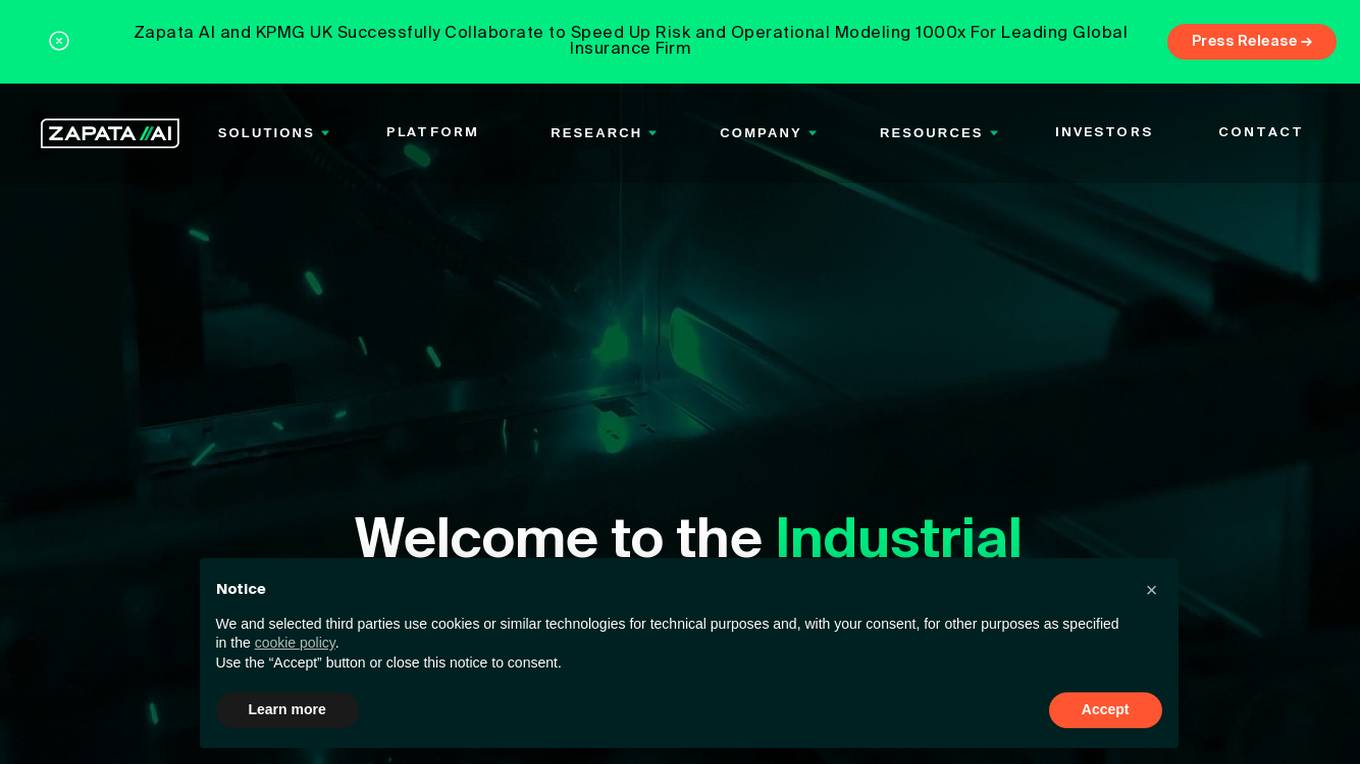
Zapata AI
Zapata AI is an Industrial Generative AI application that empowers enterprises to revolutionize their industry by building and deploying cutting-edge AI applications. It specializes in tackling complex business challenges with precision using quantum techniques and advanced computing technologies. The platform offers solutions for various industries, accelerates quantum research, and provides expert perspectives on Generative AI and quantum computing.
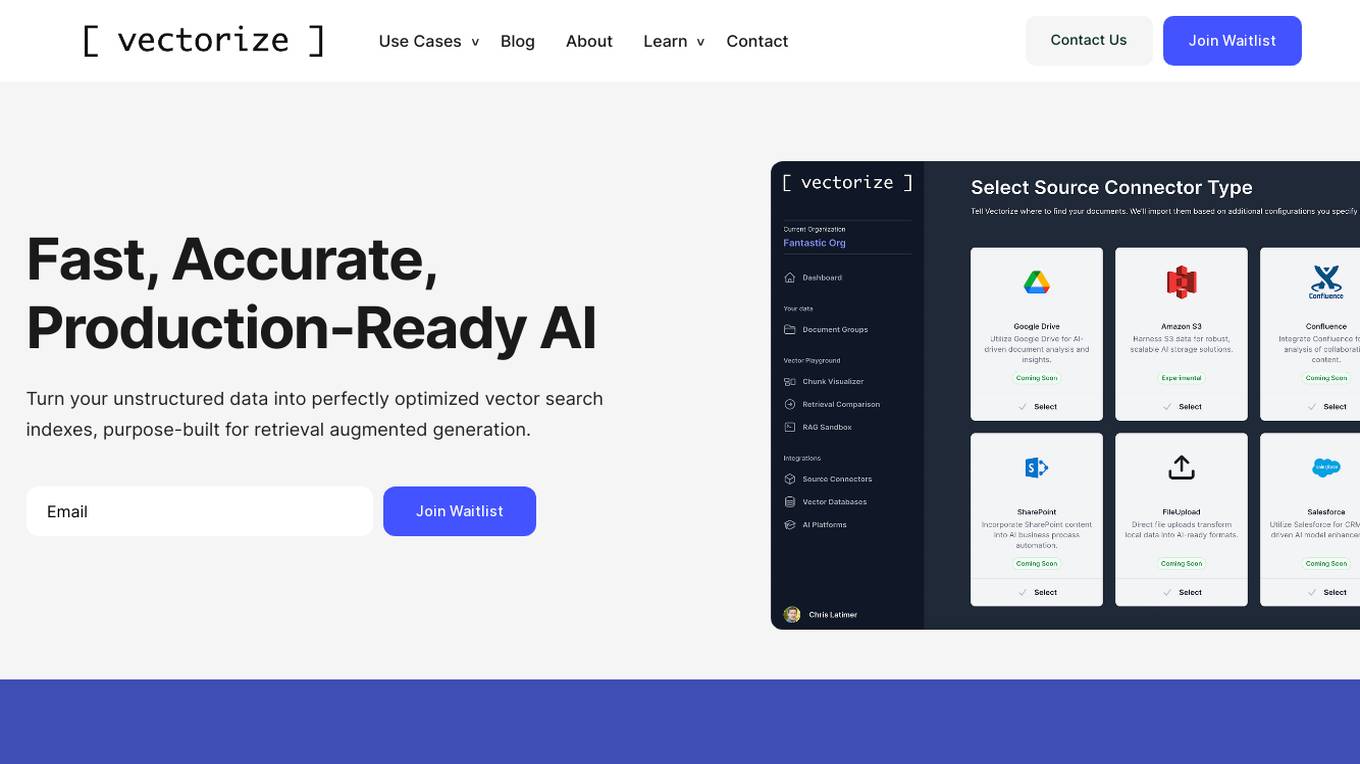
Vectorize
Vectorize is a fast, accurate, and production-ready AI tool that helps users turn unstructured data into optimized vector search indexes. It leverages Large Language Models (LLMs) to create copilots and enhance customer experiences by extracting natural language from various sources. With built-in support for top AI platforms and a variety of embedding models and chunking strategies, Vectorize enables users to deploy real-time vector pipelines for accurate search results. The tool also offers out-of-the-box connectors to popular knowledge repositories and collaboration platforms, making it easy to transform knowledge into AI-generated content.
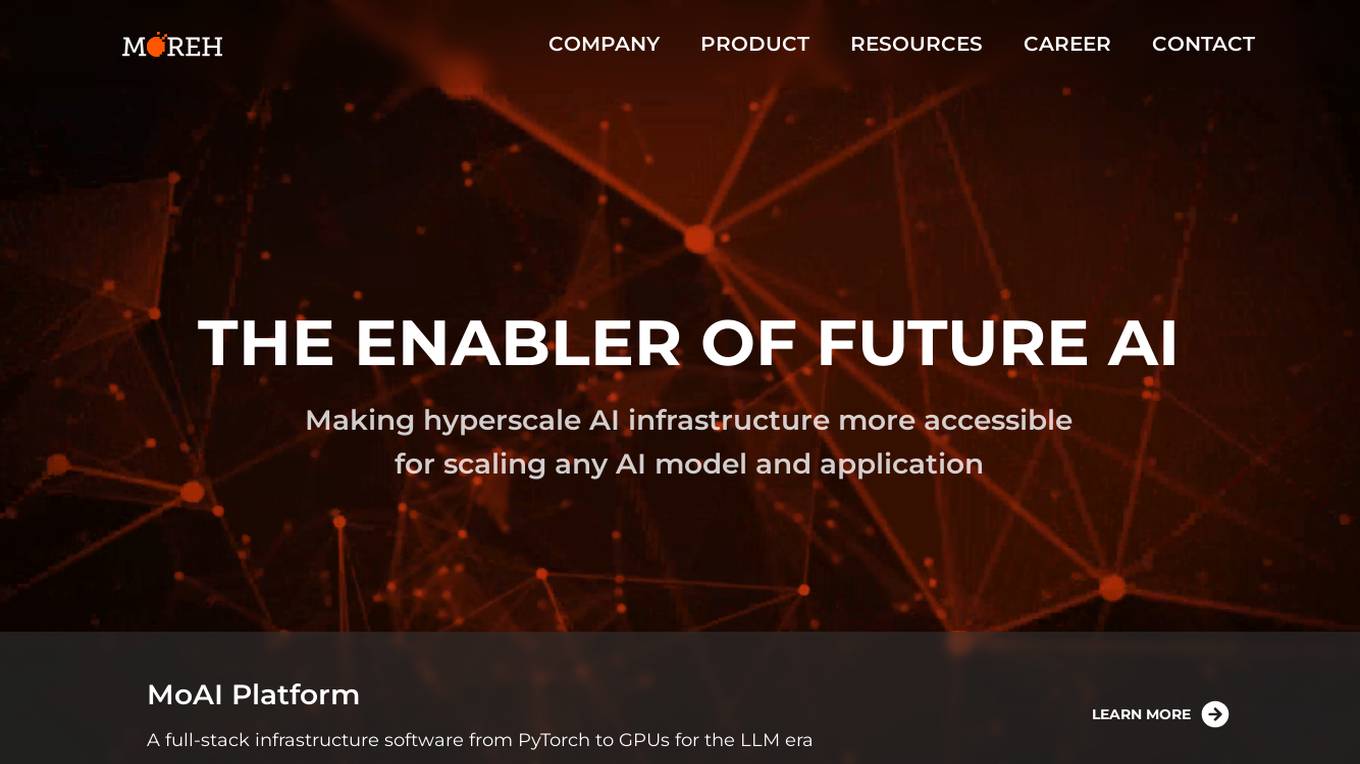
Moreh
Moreh is an AI platform that aims to make hyperscale AI infrastructure more accessible for scaling any AI model and application. It provides a full-stack infrastructure software from PyTorch to GPUs for the LLM era, enabling users to train large language models efficiently and effectively.
0 - Open Source AI Tools
20 - OpenAI Gpts
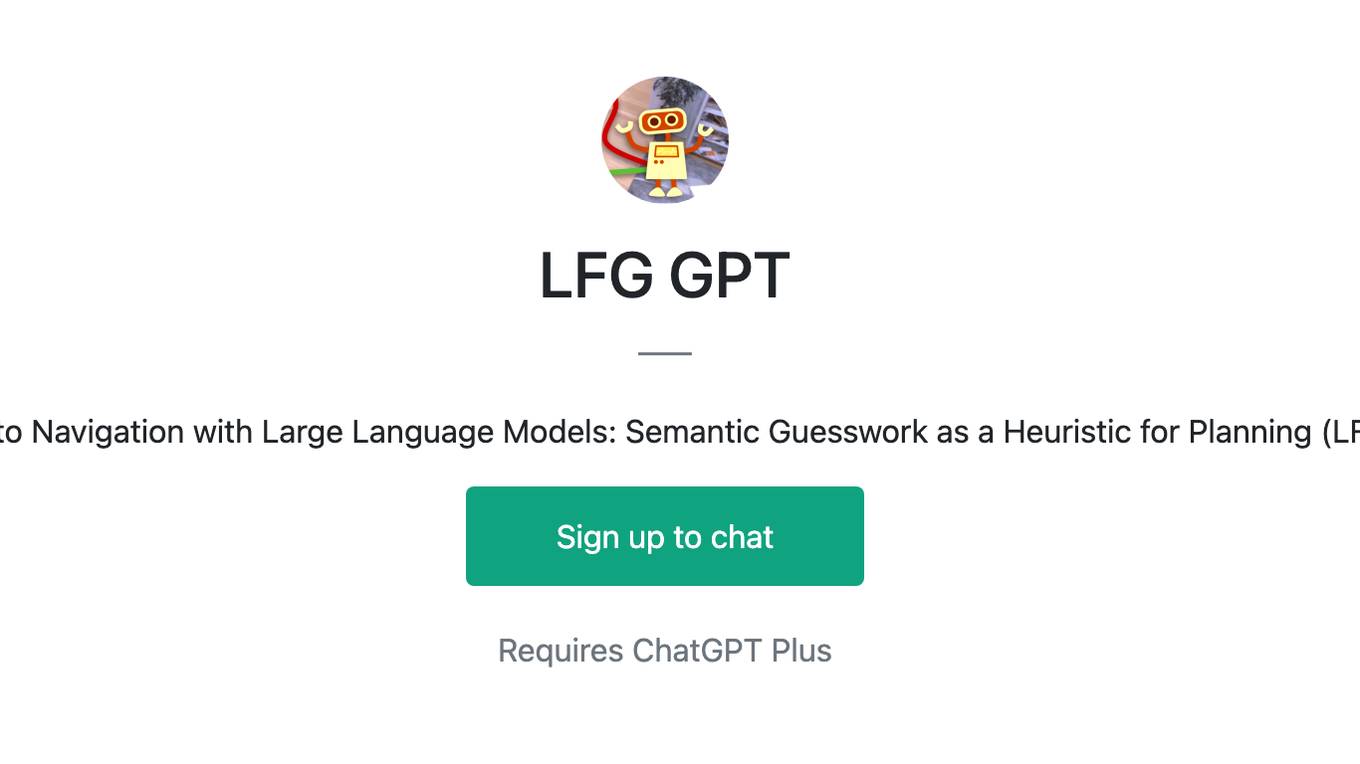
LFG GPT
Talk to Navigation with Large Language Models: Semantic Guesswork as a Heuristic for Planning (LFG)
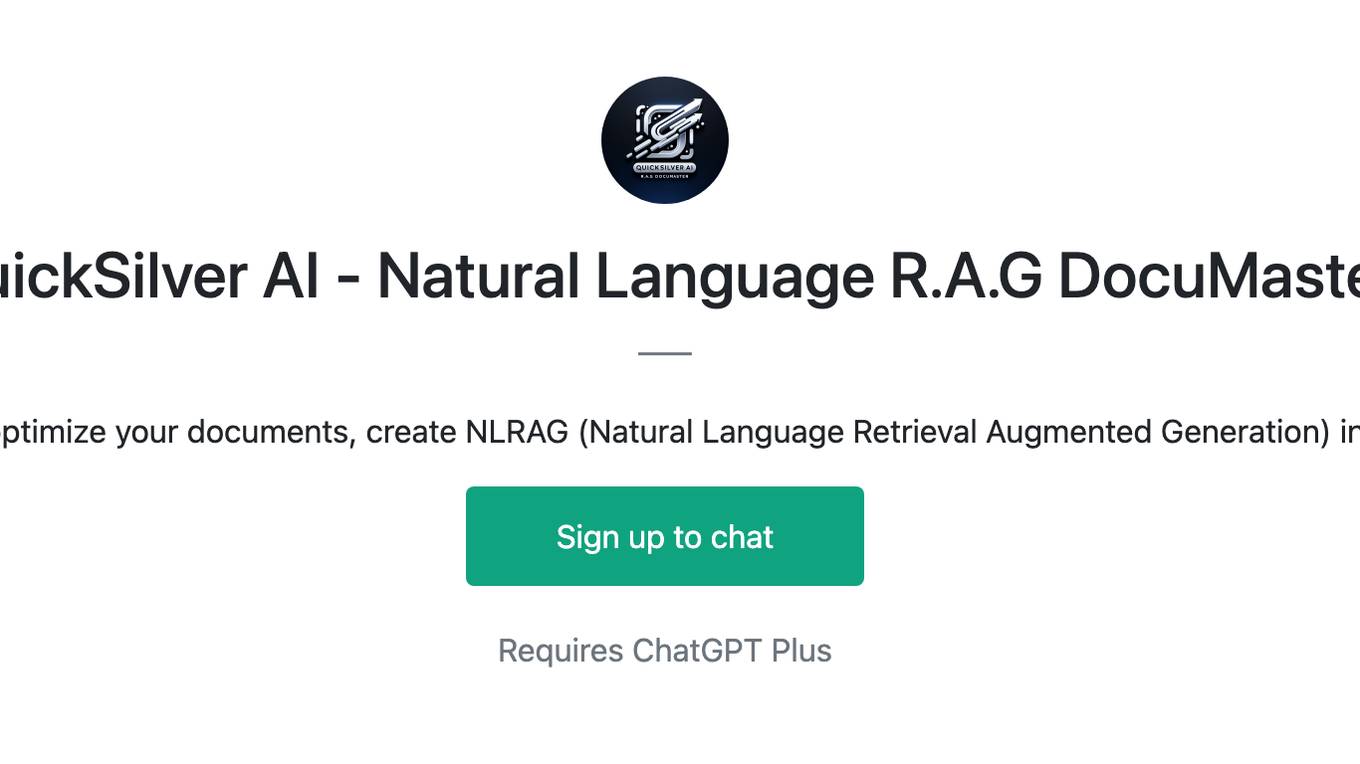
QuickSilver AI - Natural Language R.A.G DocuMaster
Easily format and optimize your documents, create NLRAG (Natural Language Retrieval Augmented Generation) indexes and more!

Legal Bidding Expert
Chinese-language support for Baidu legal bidding with a focus on audience analysis and creative content.
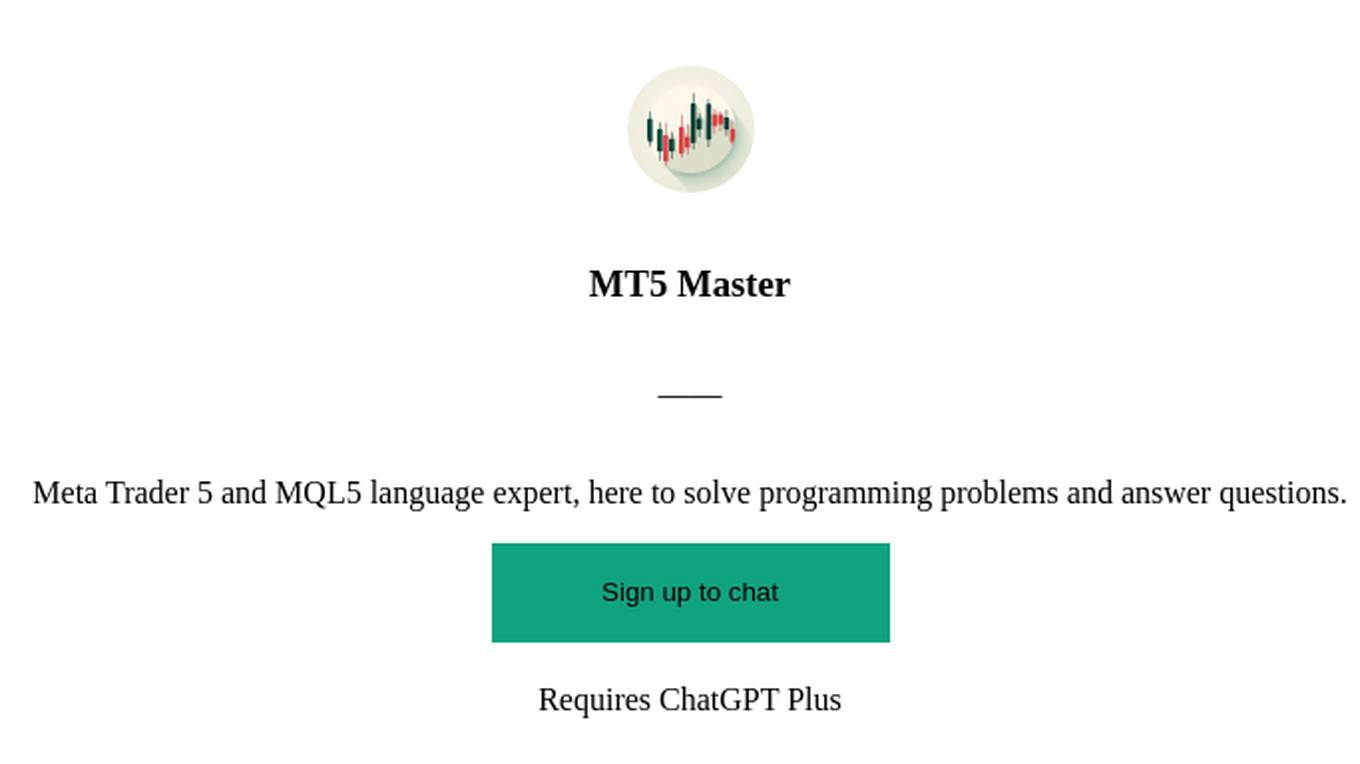
MT5 Master
Meta Trader 5 and MQL5 language expert, here to solve programming problems and answer questions.
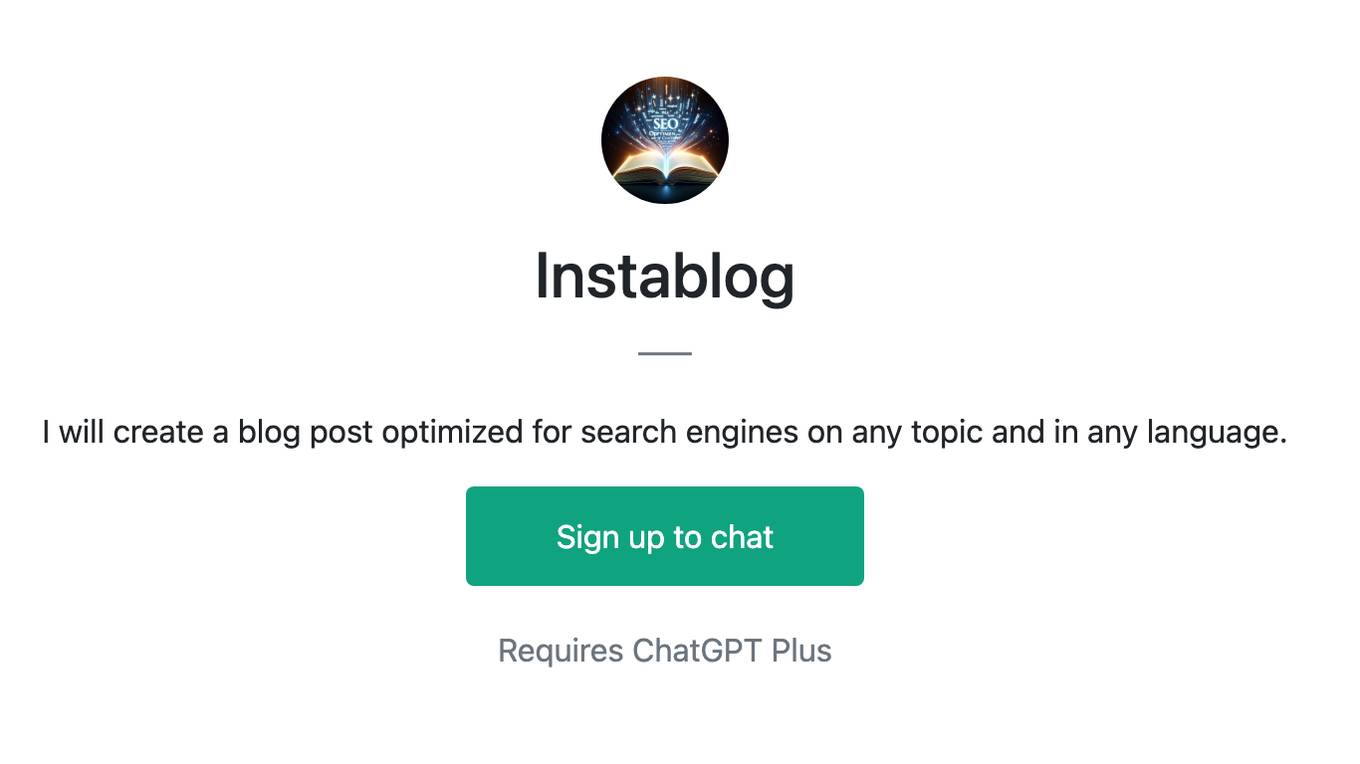
Instablog
I will create a blog post optimized for search engines on any topic and in any language.
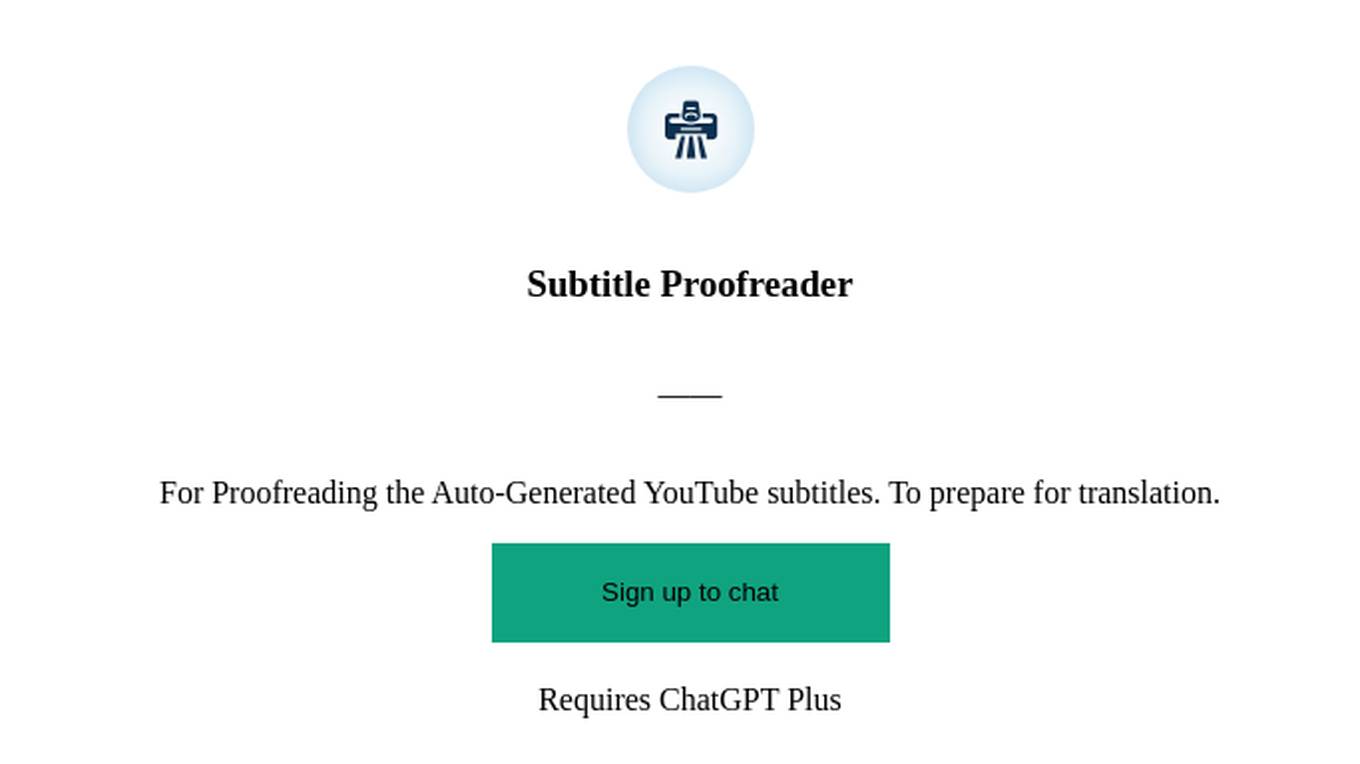
Subtitle Proofreader
For Proofreading the Auto-Generated YouTube subtitles. To prepare for translation.

